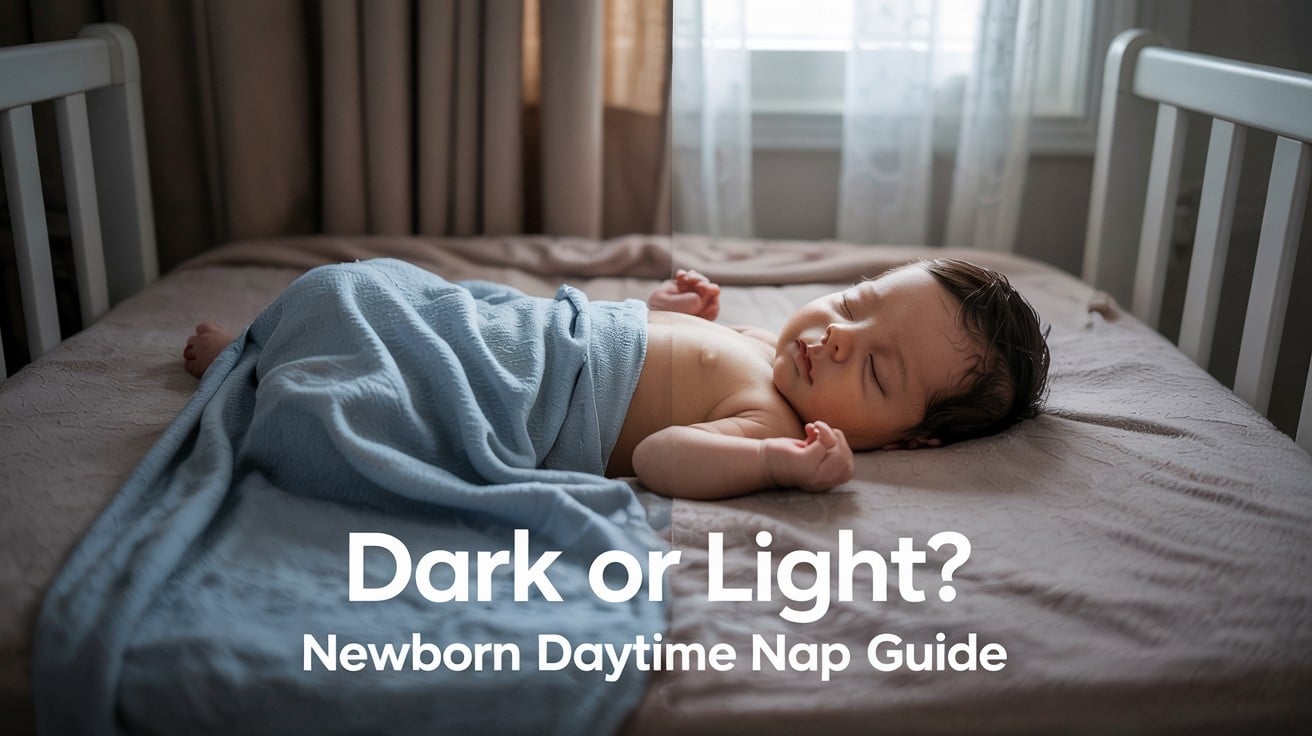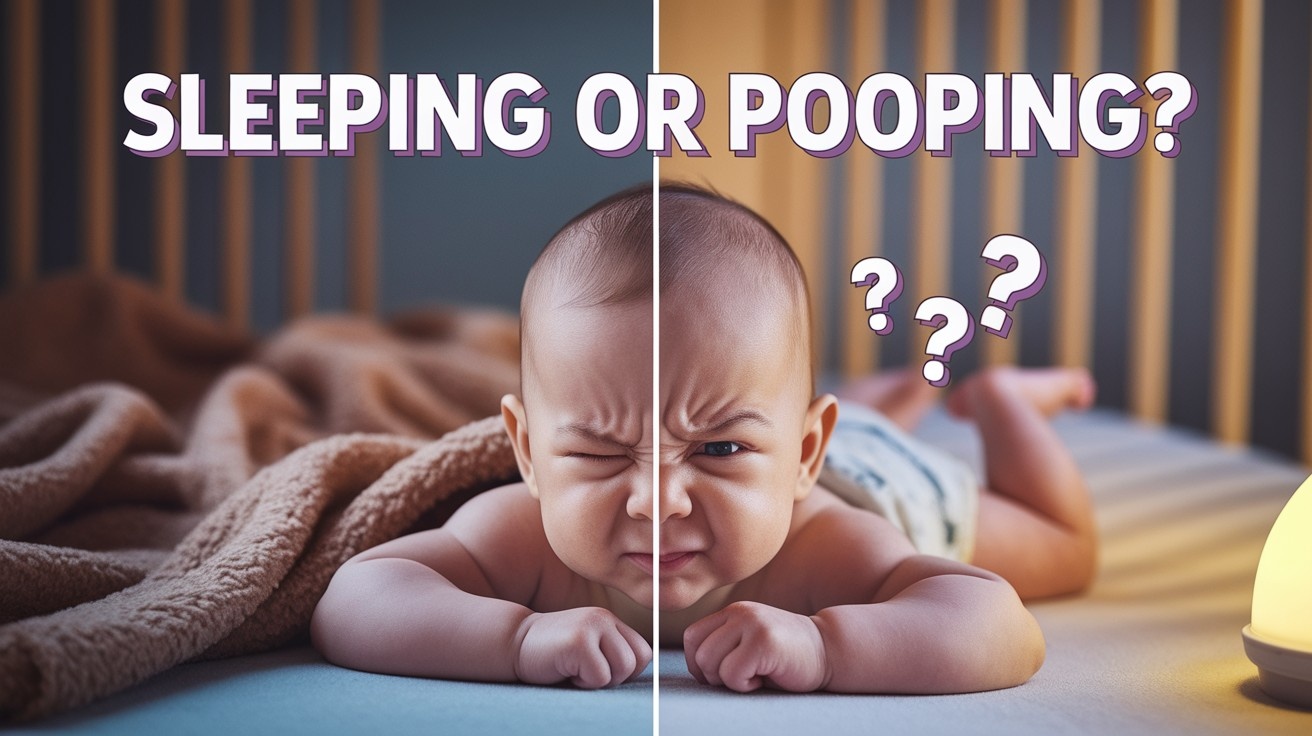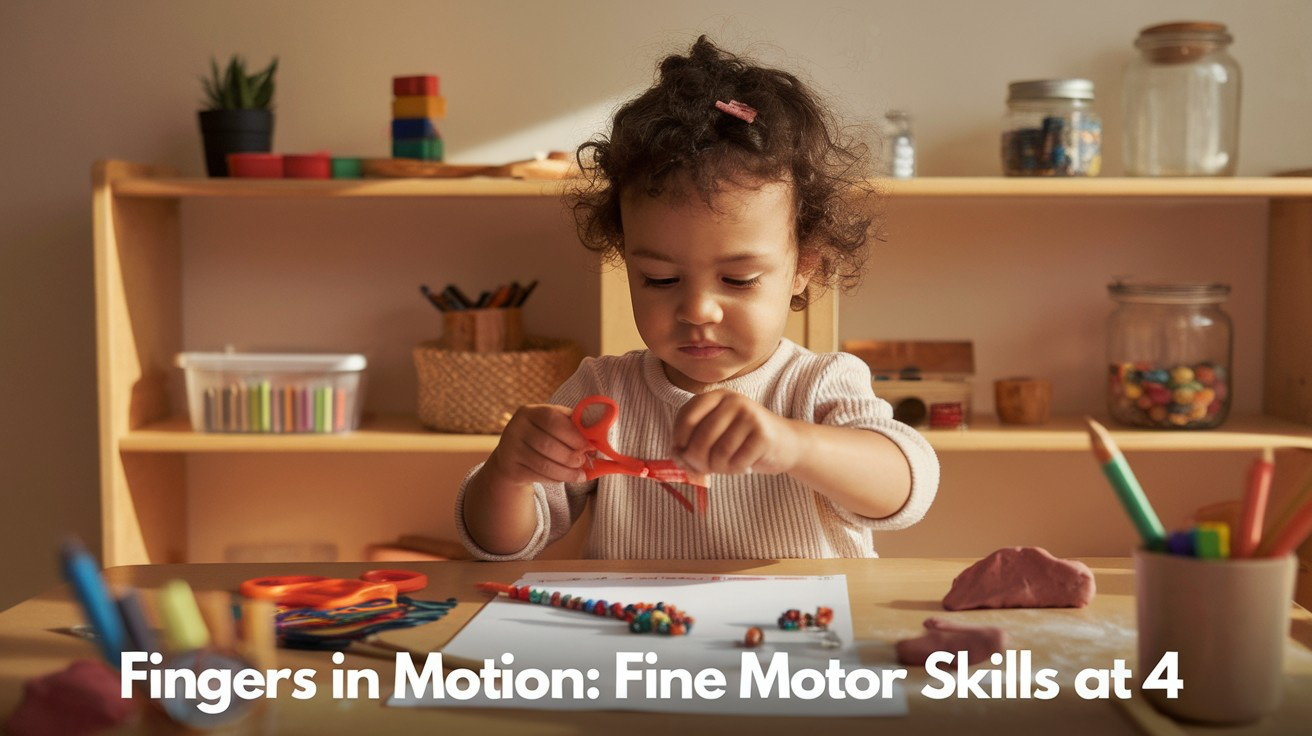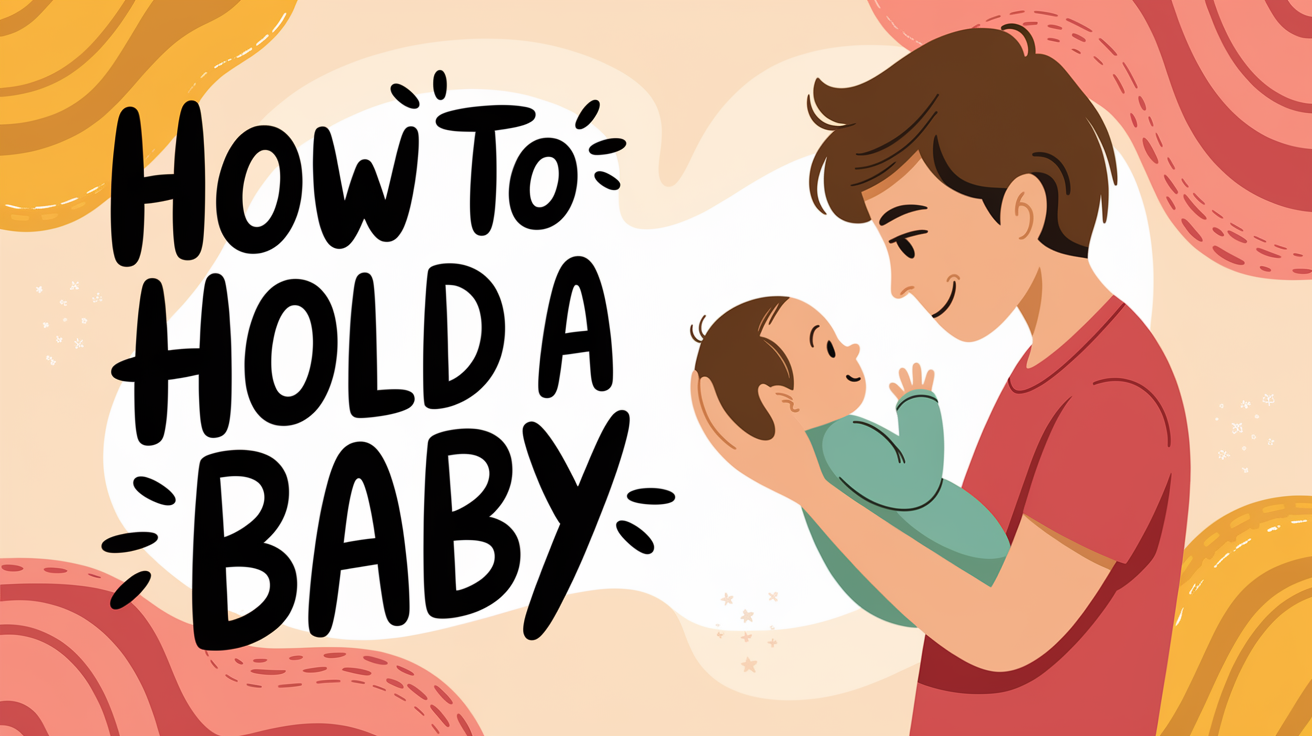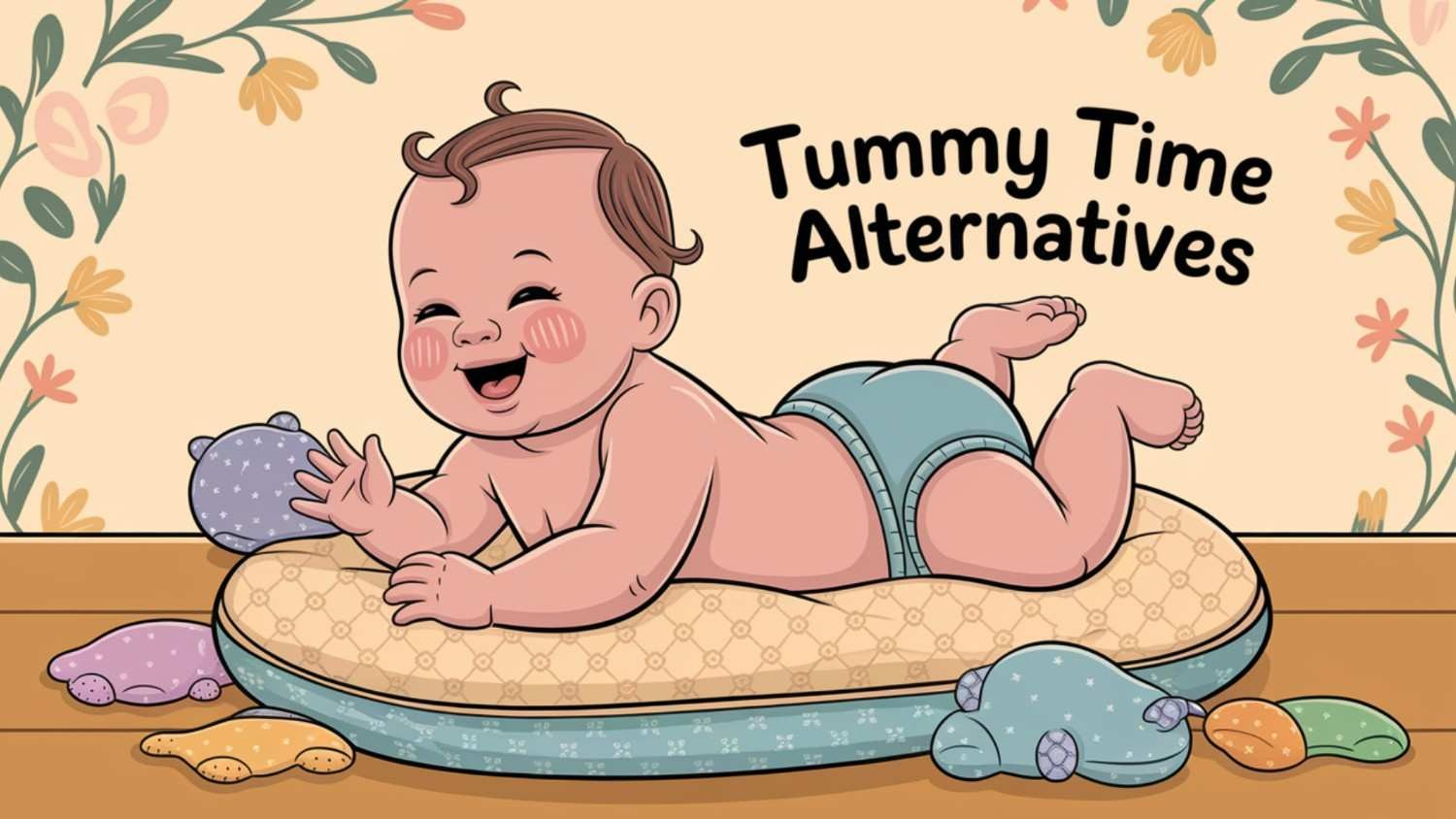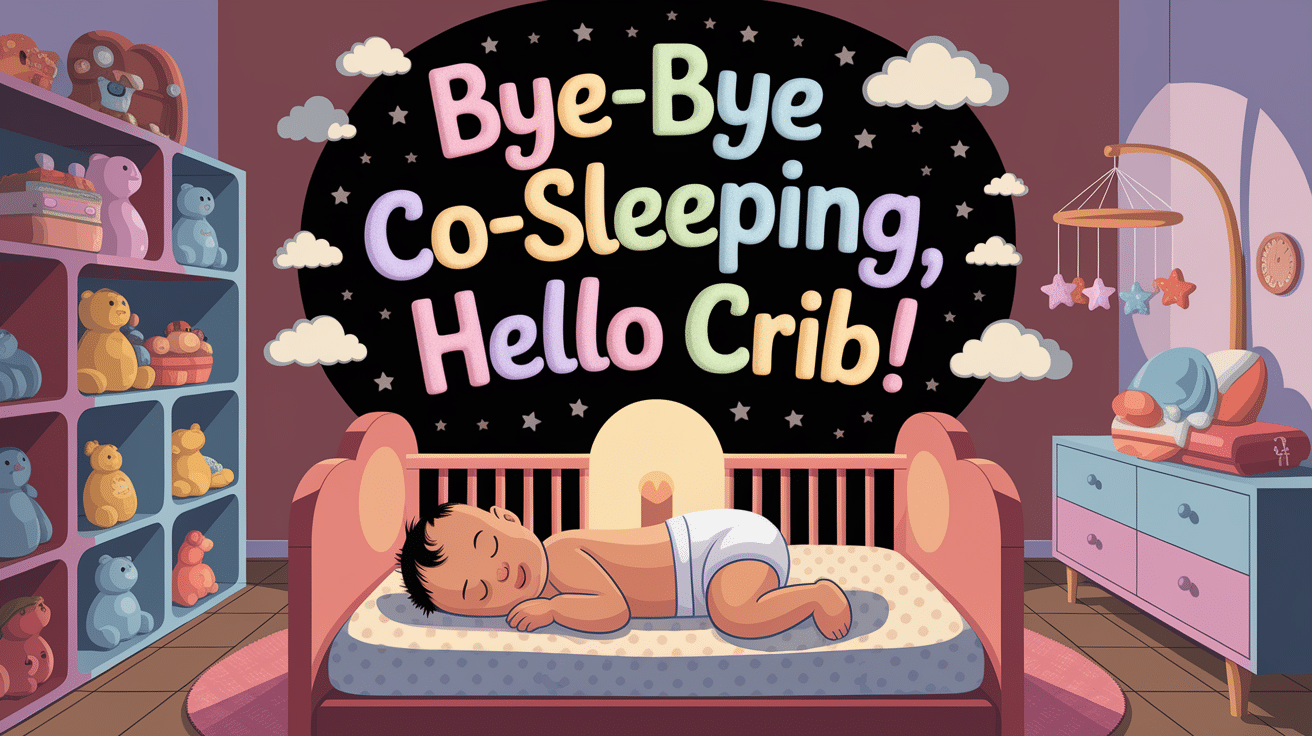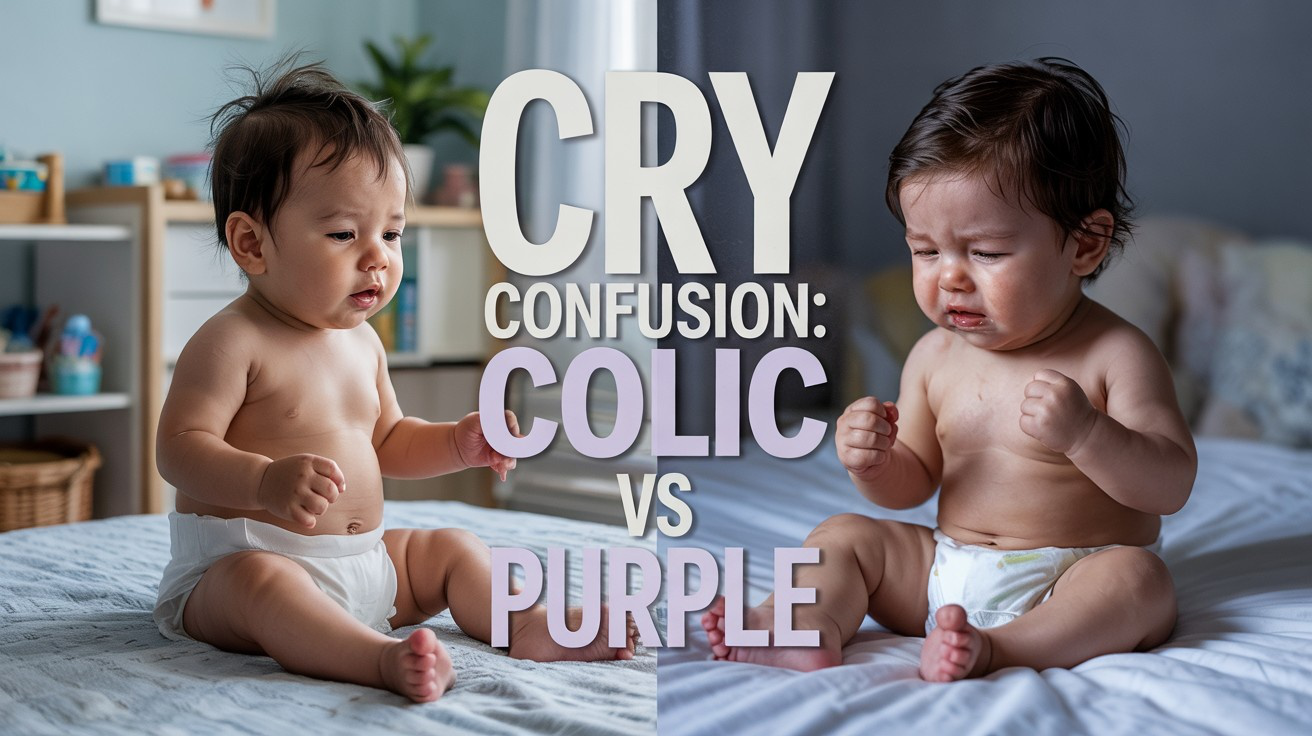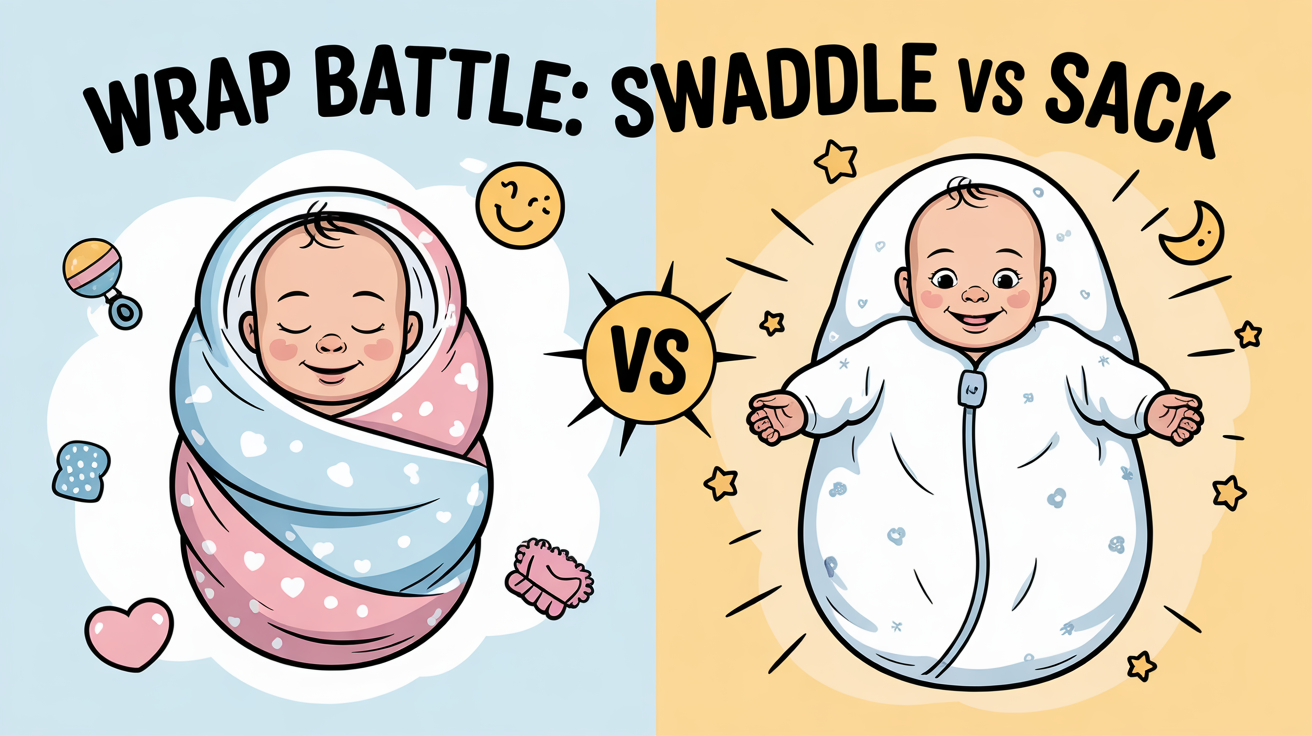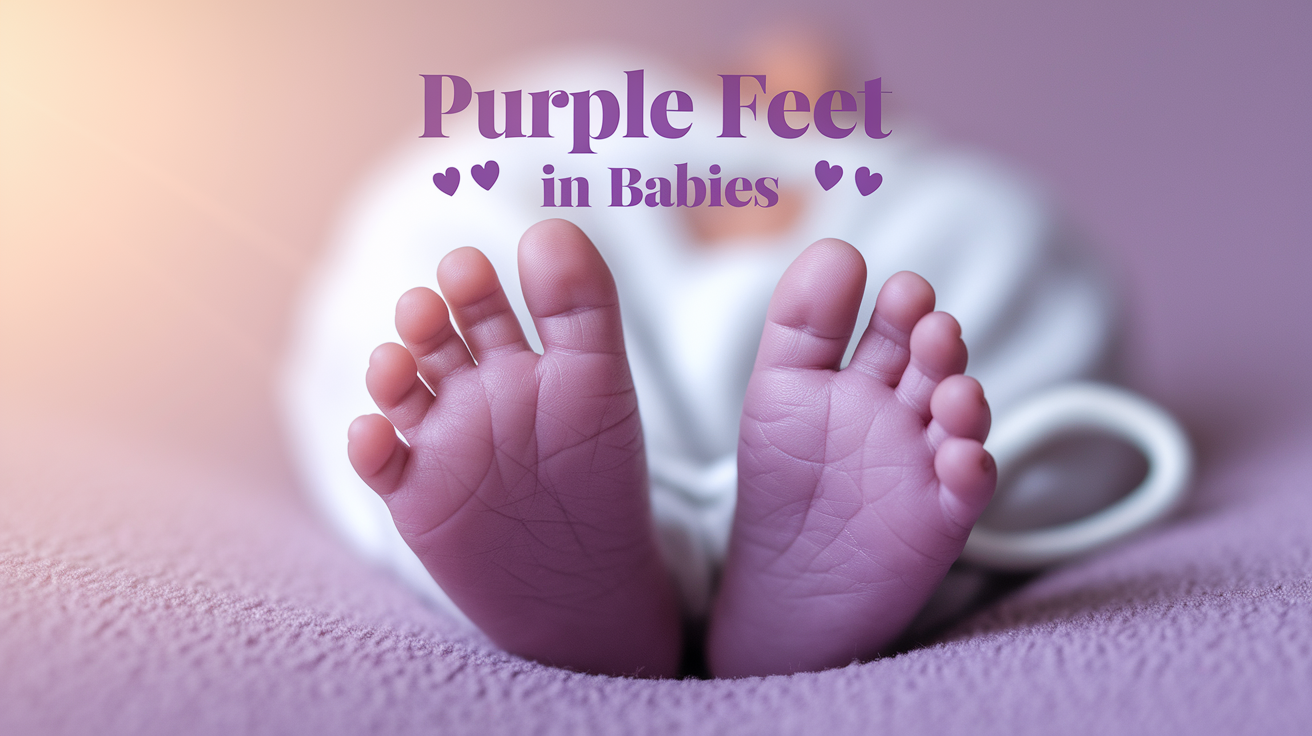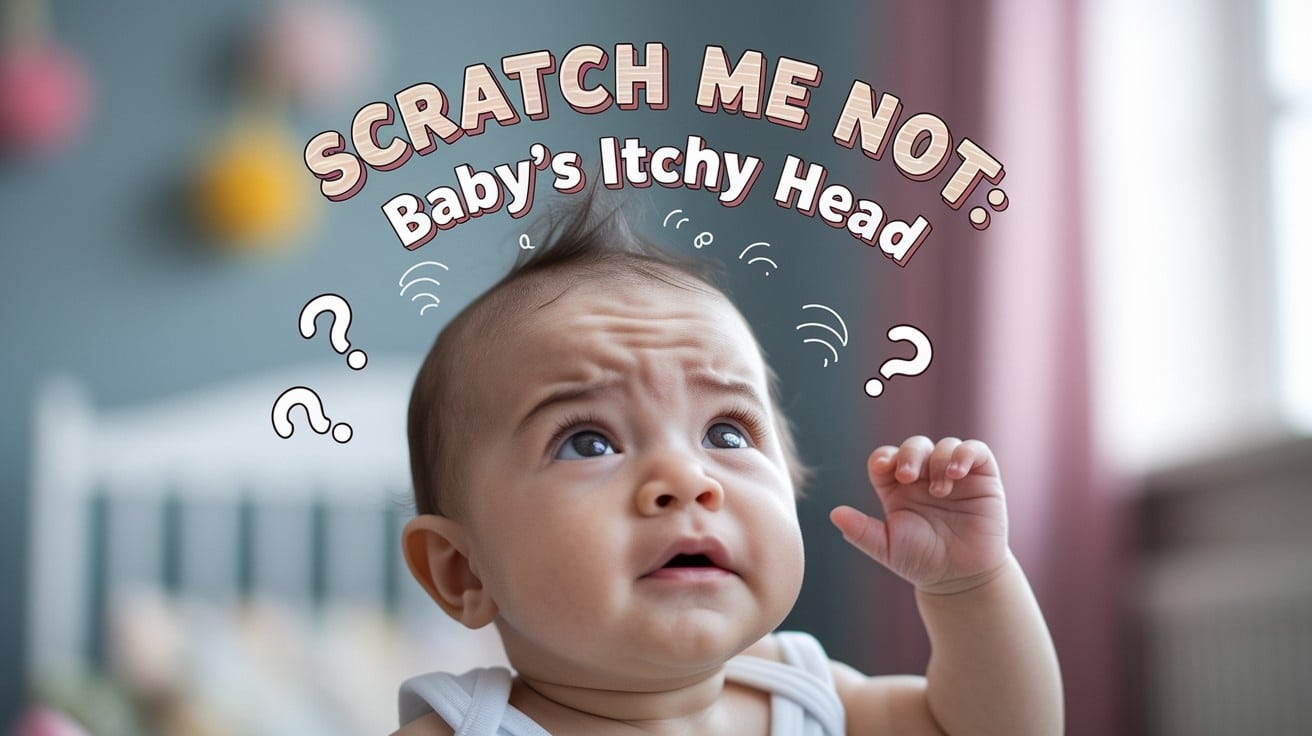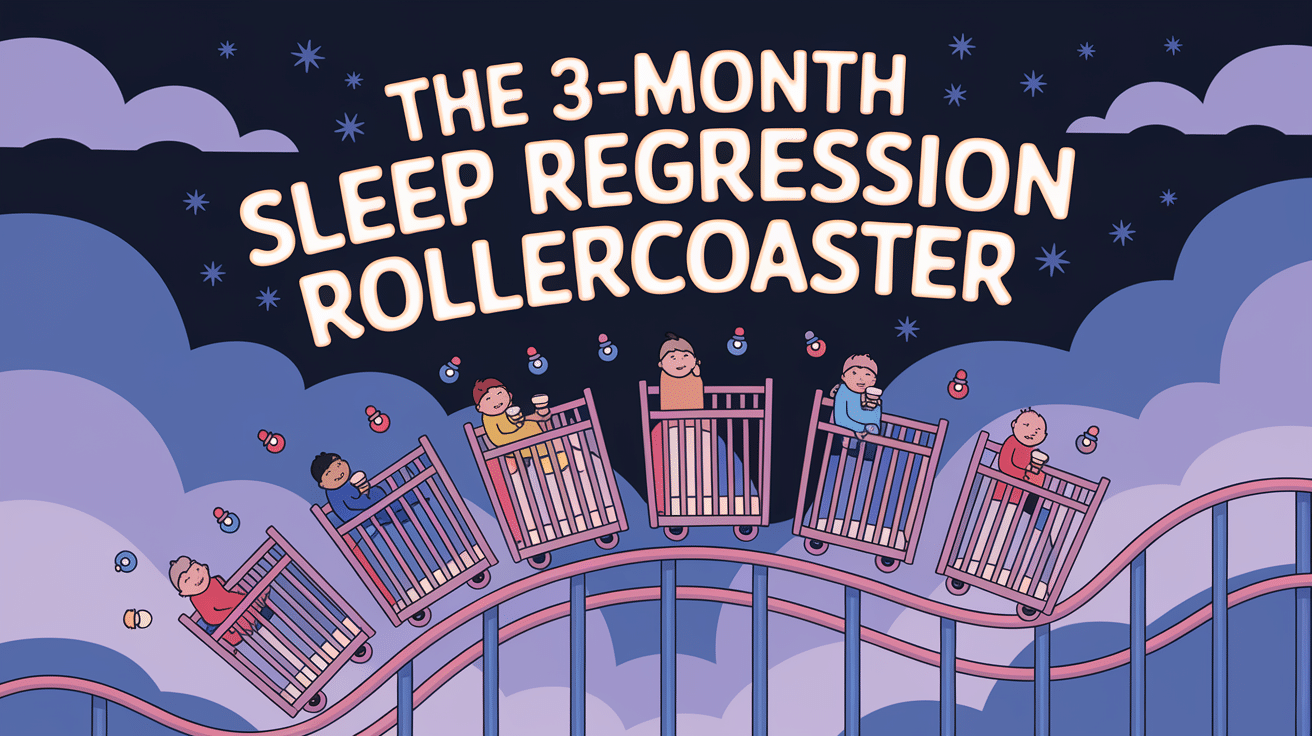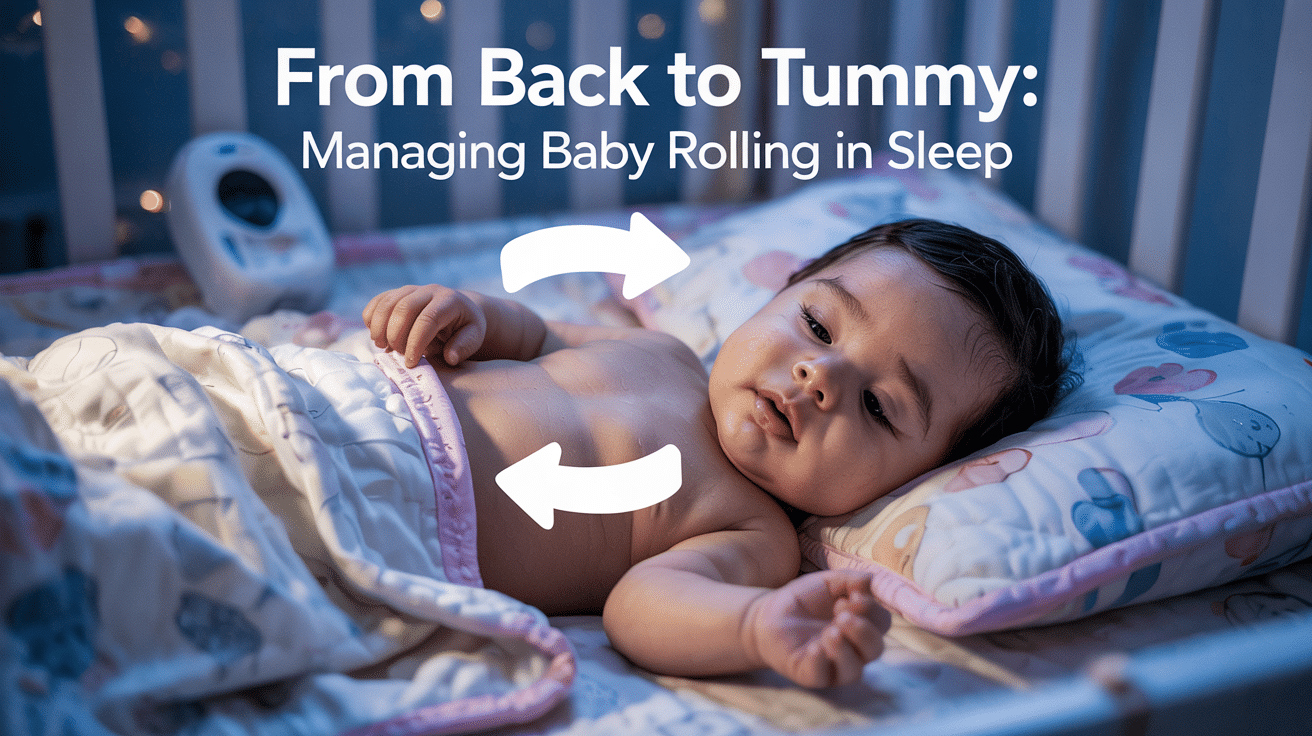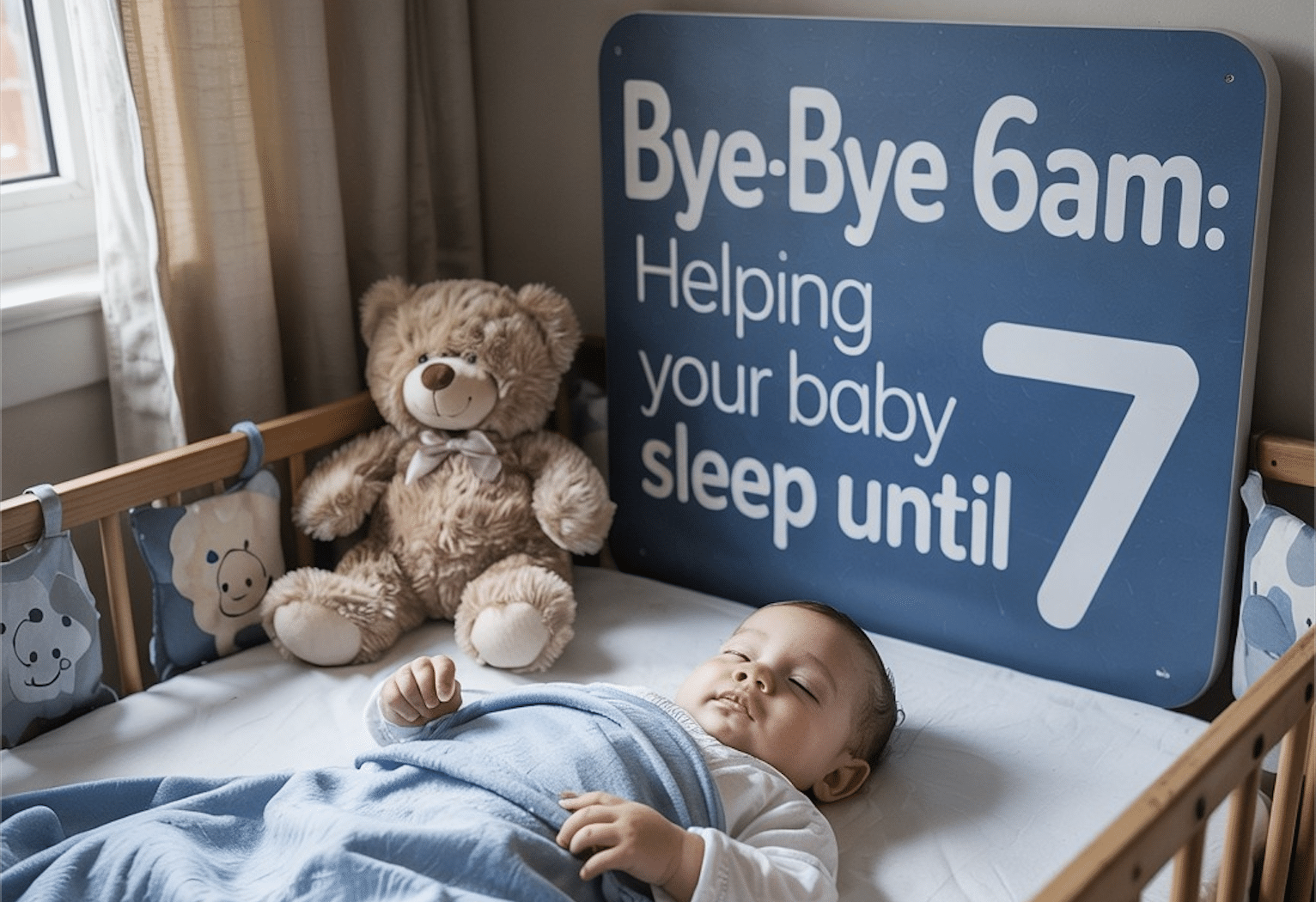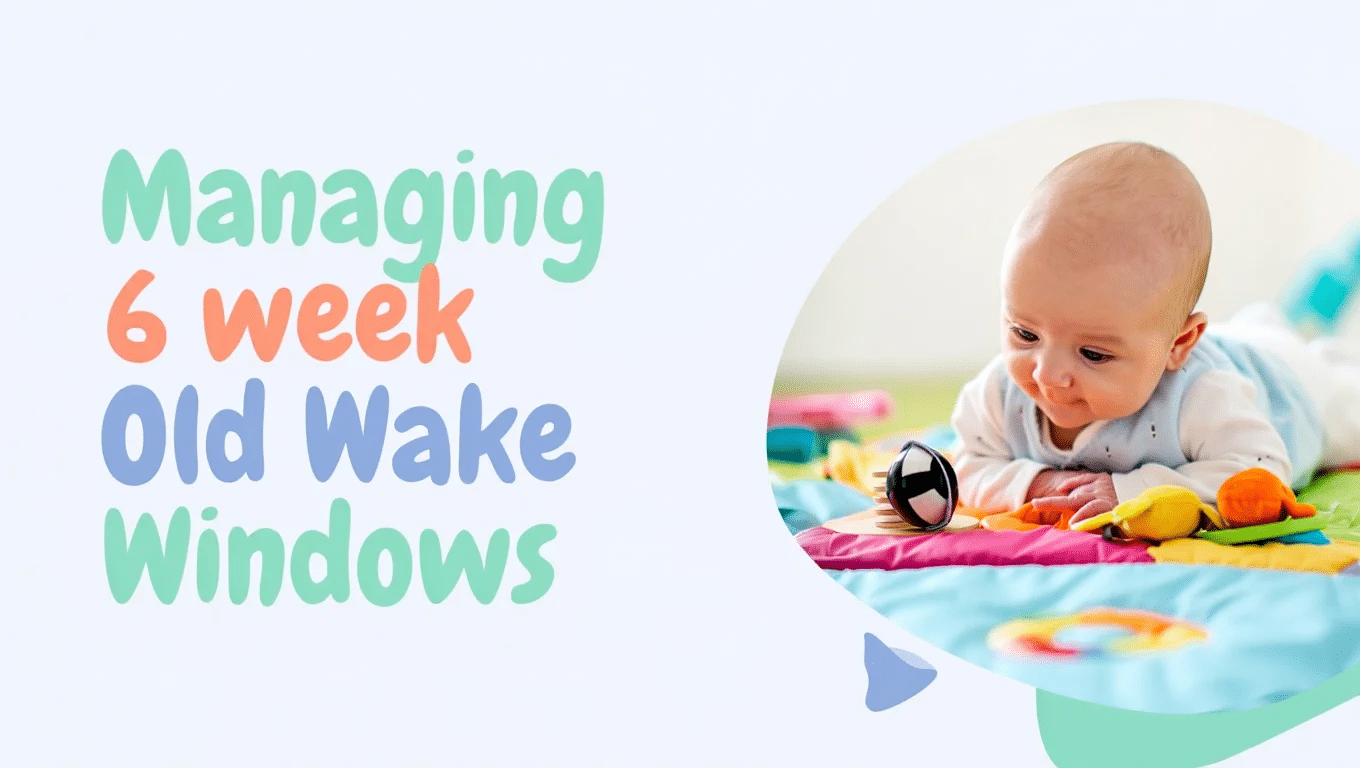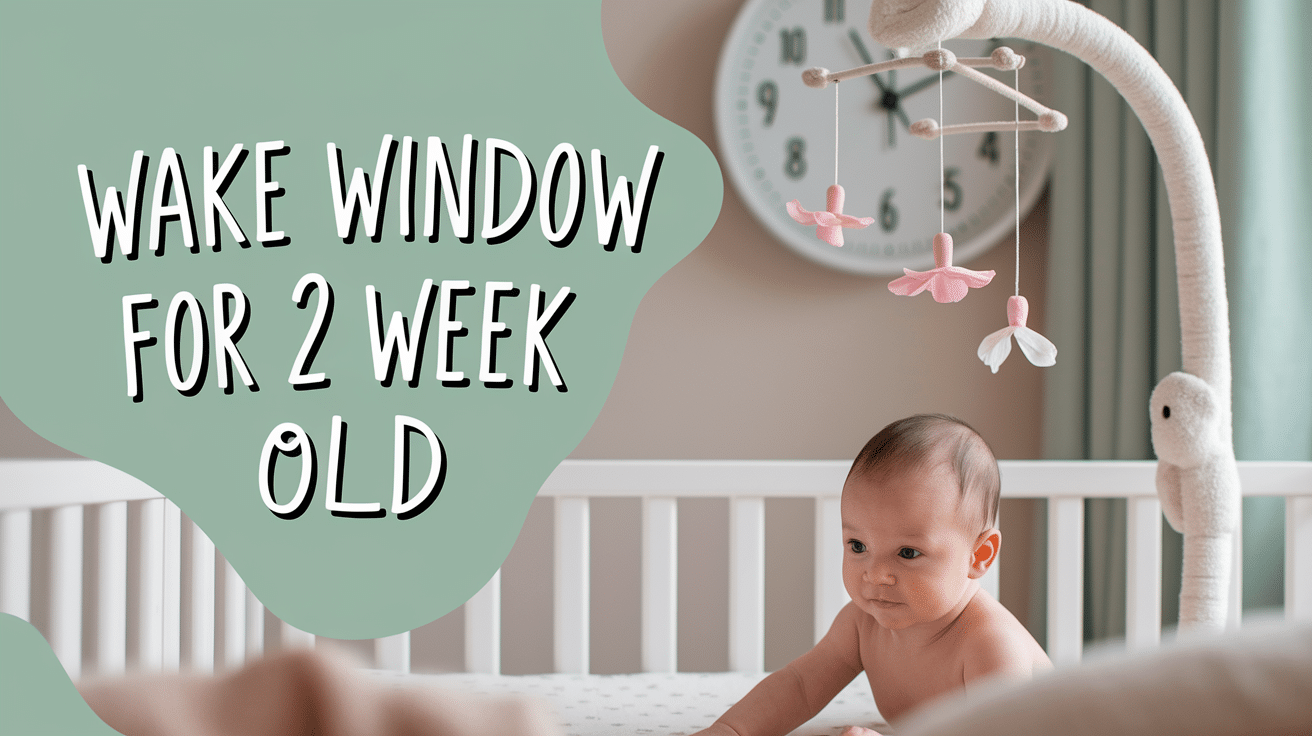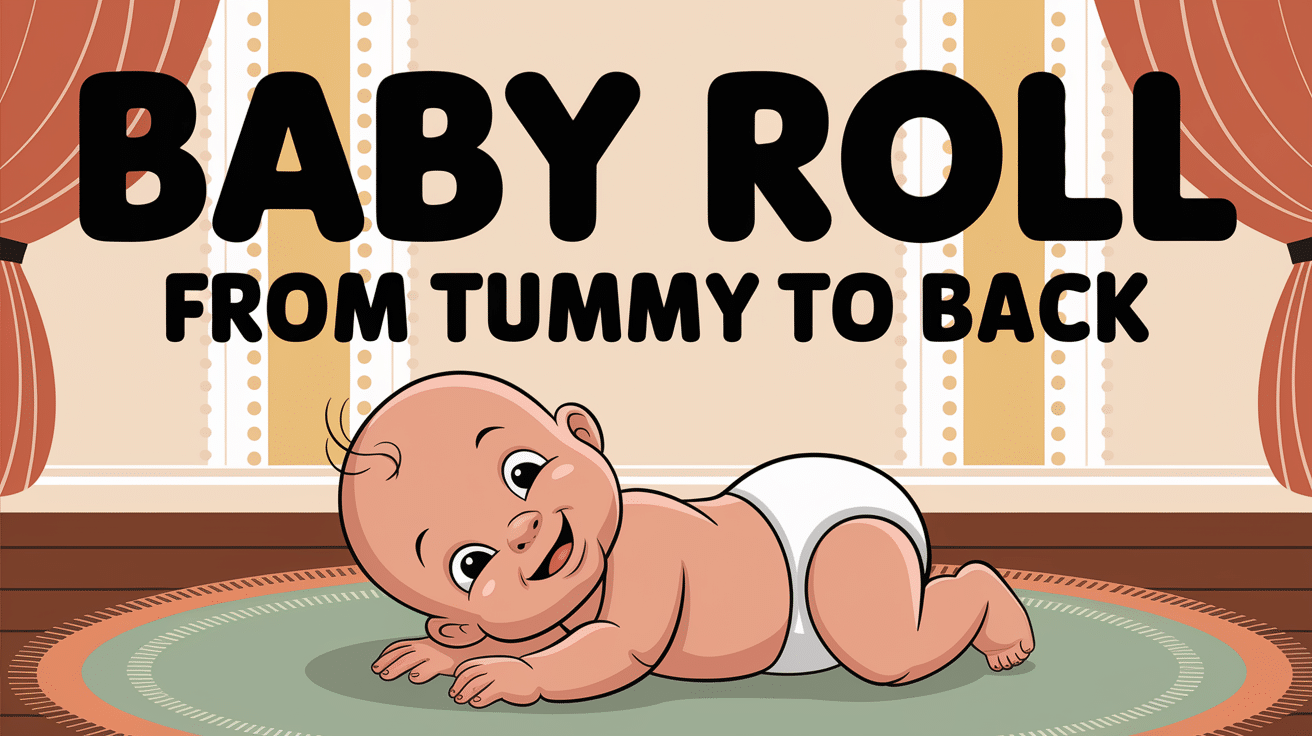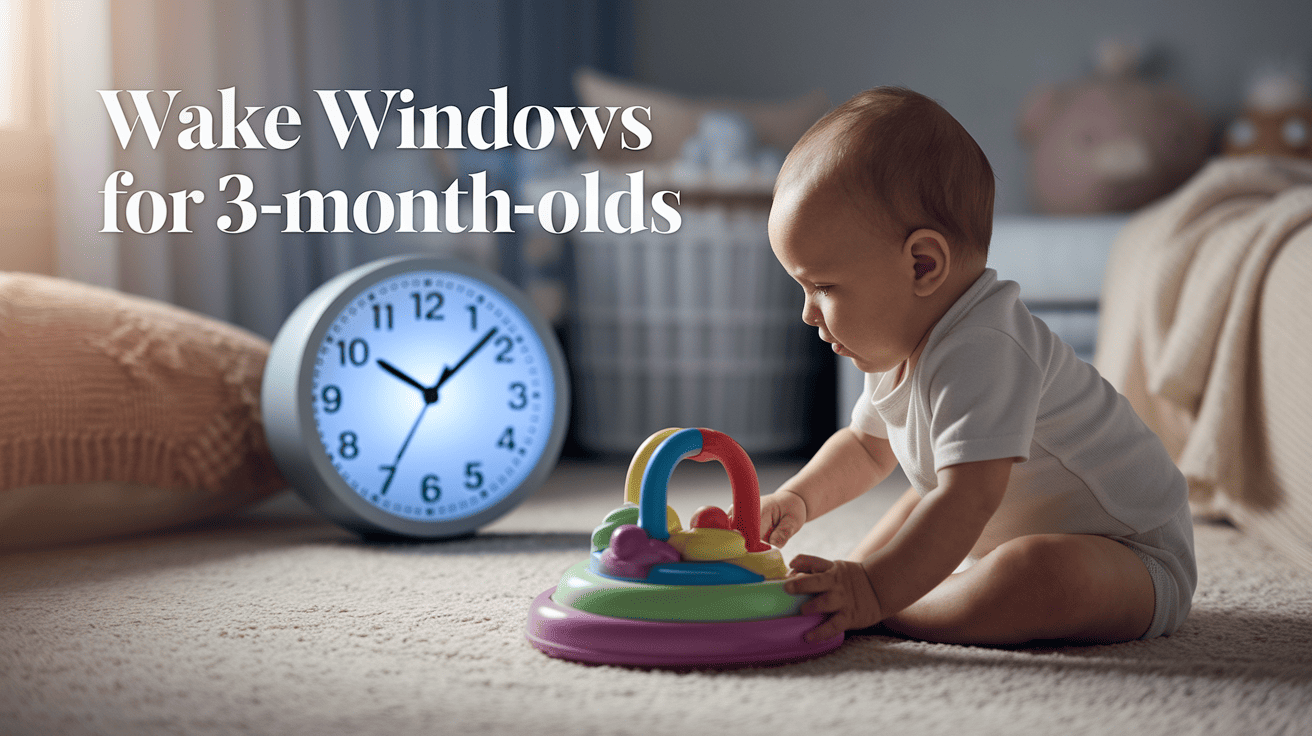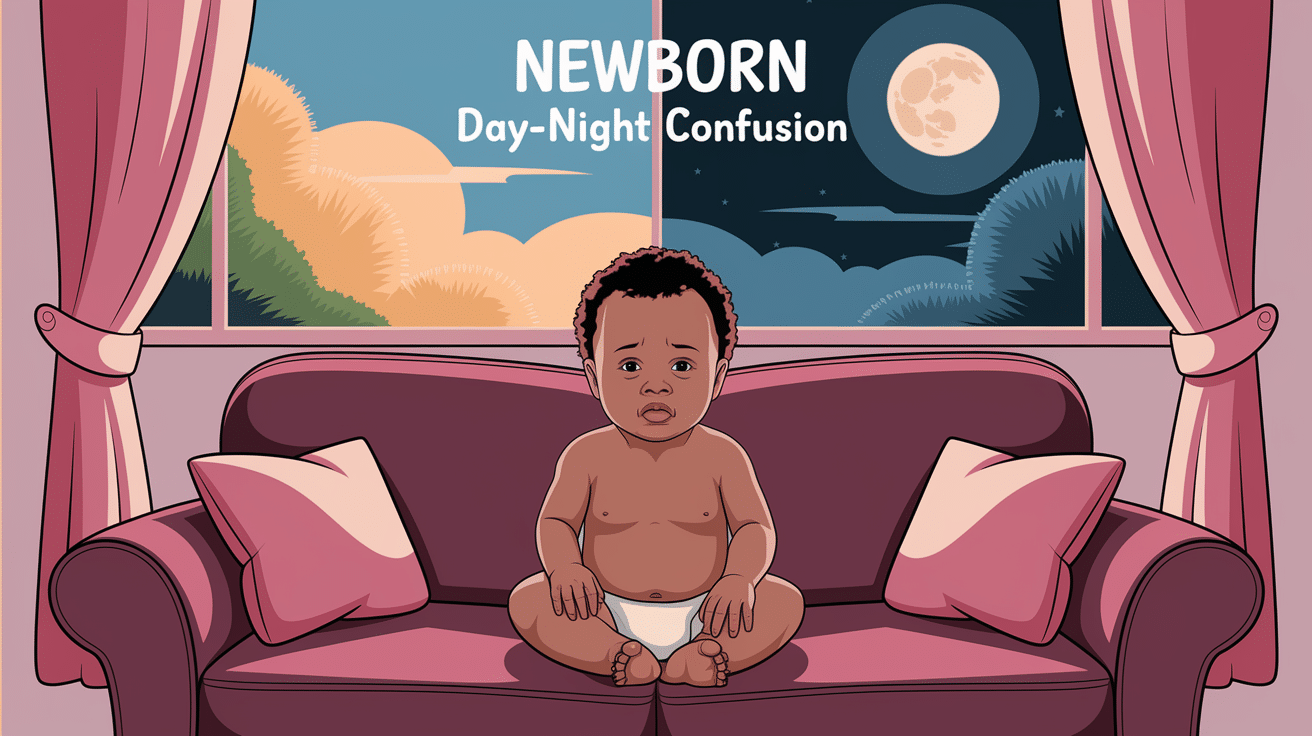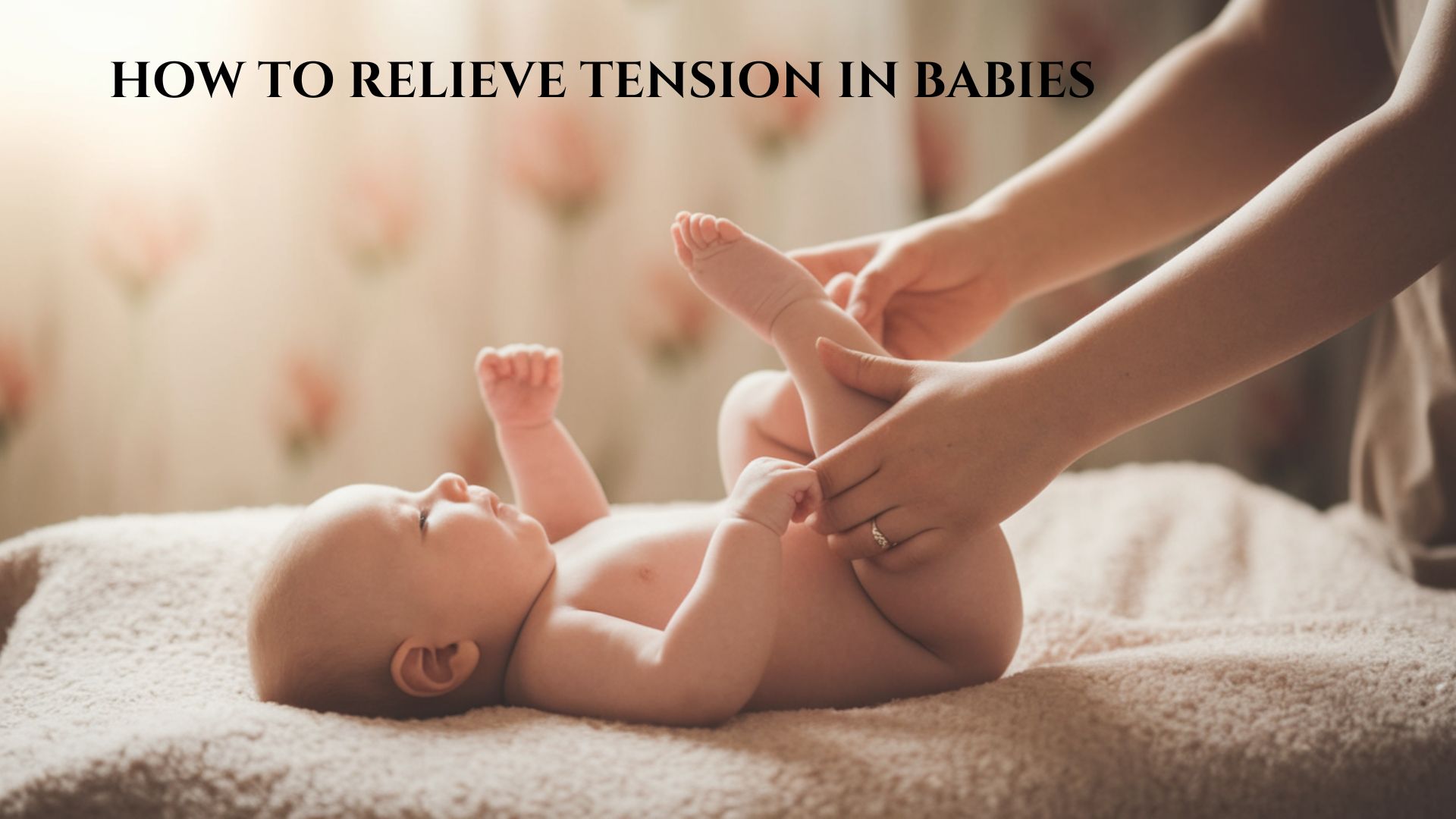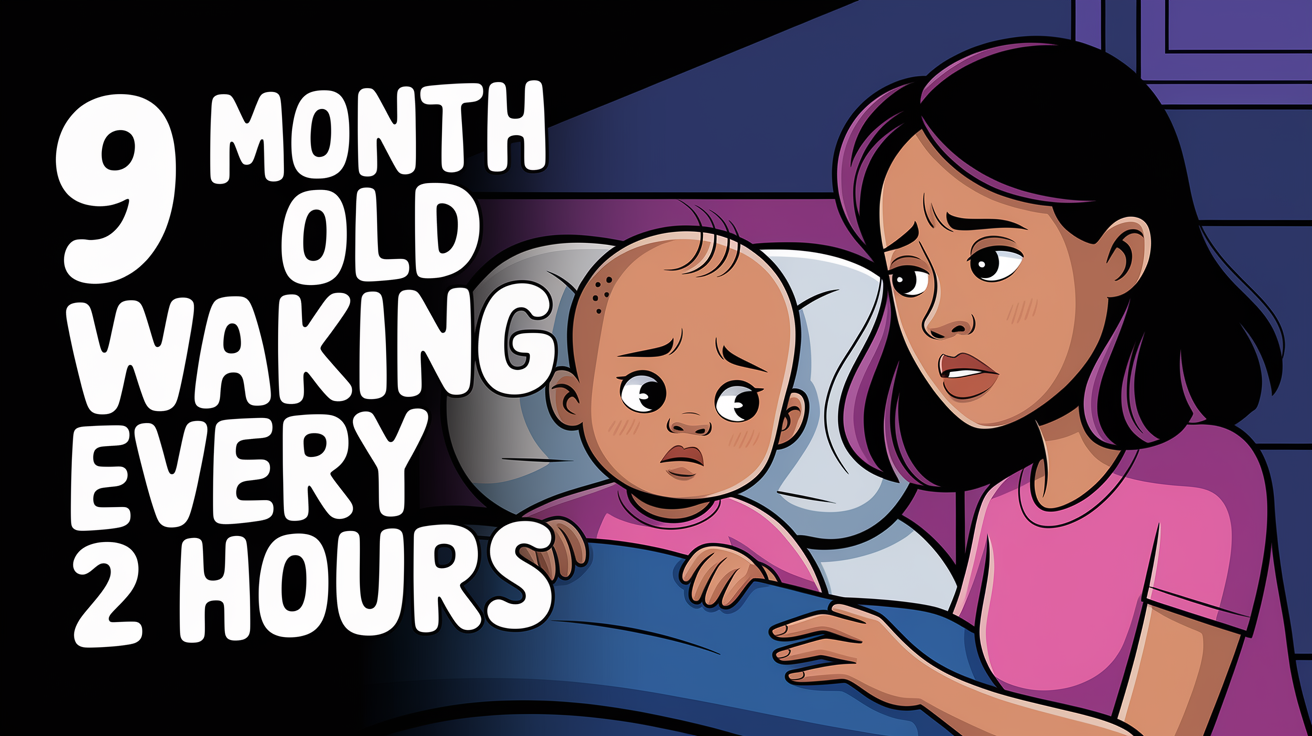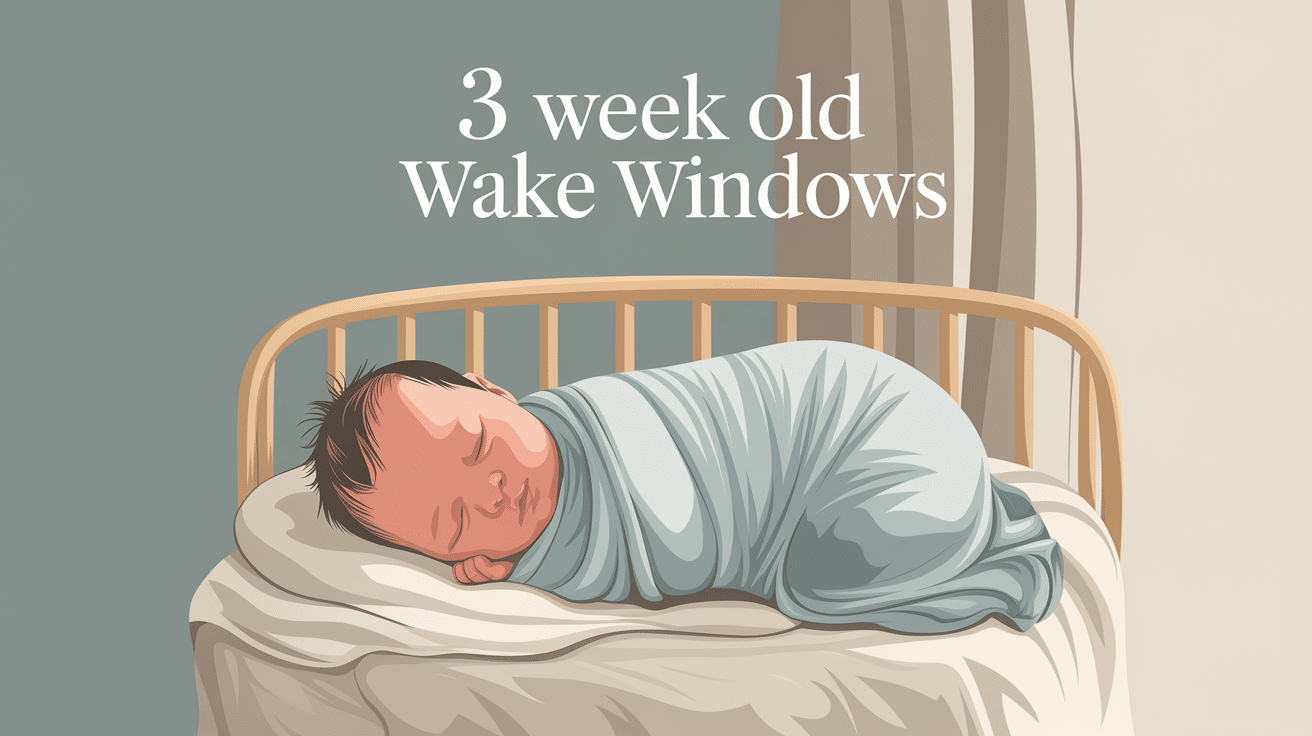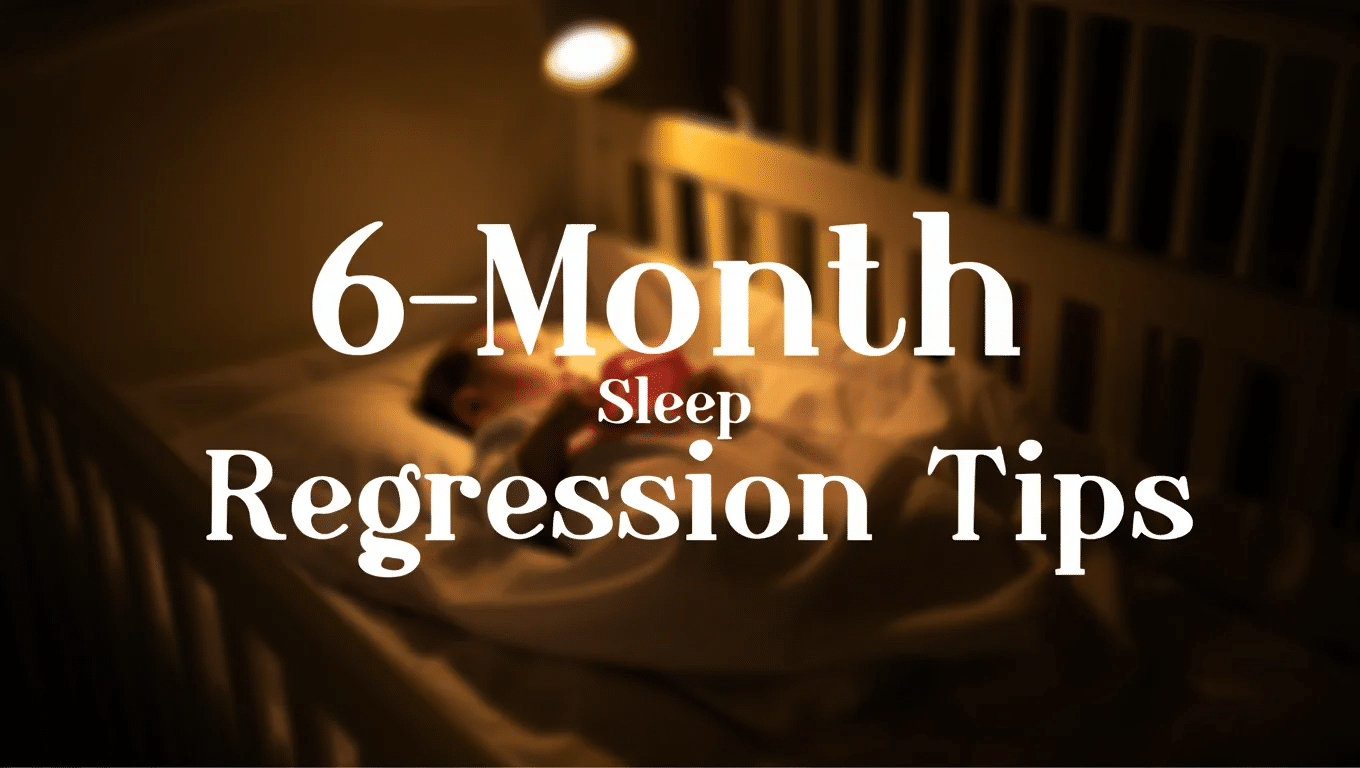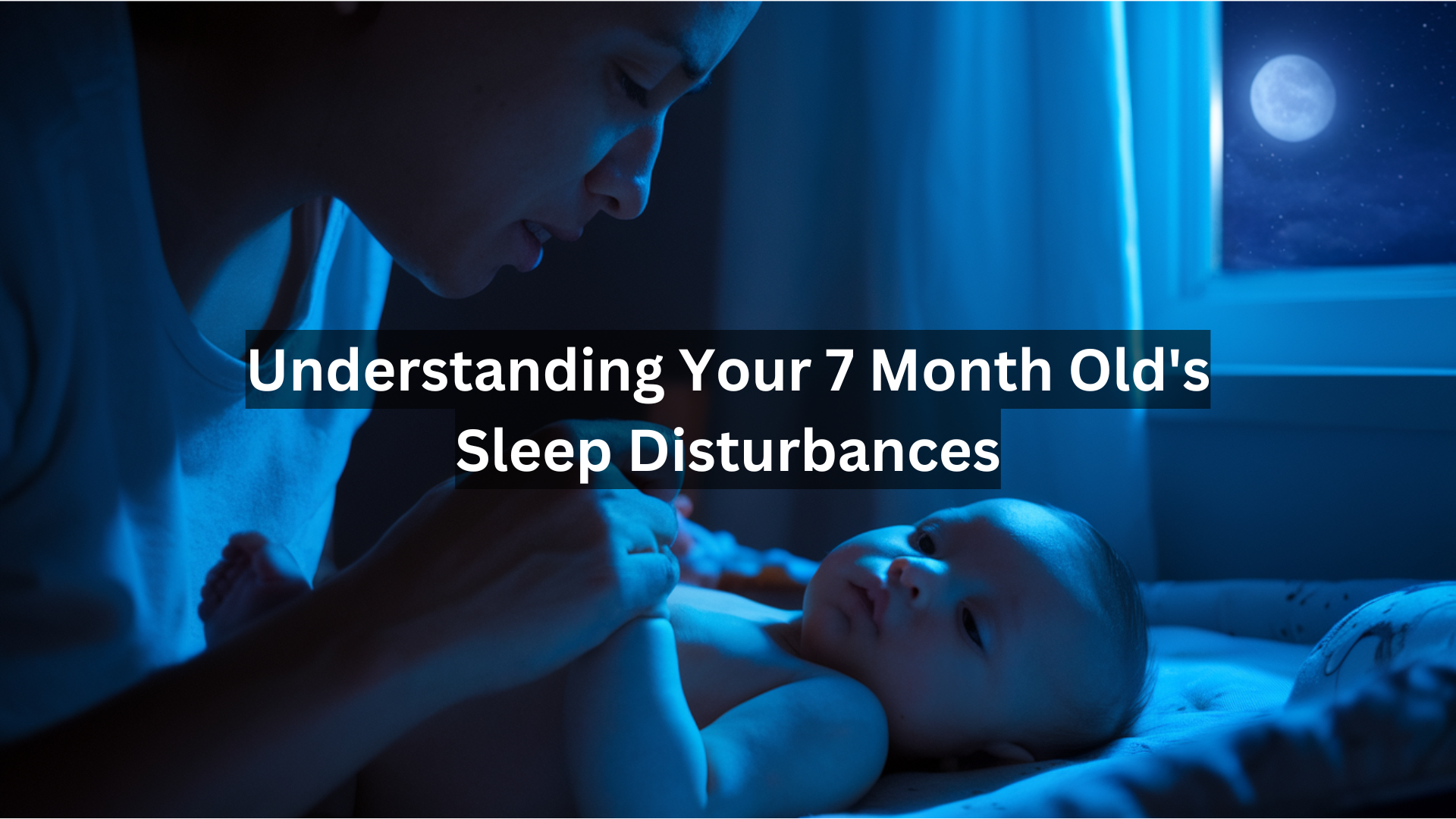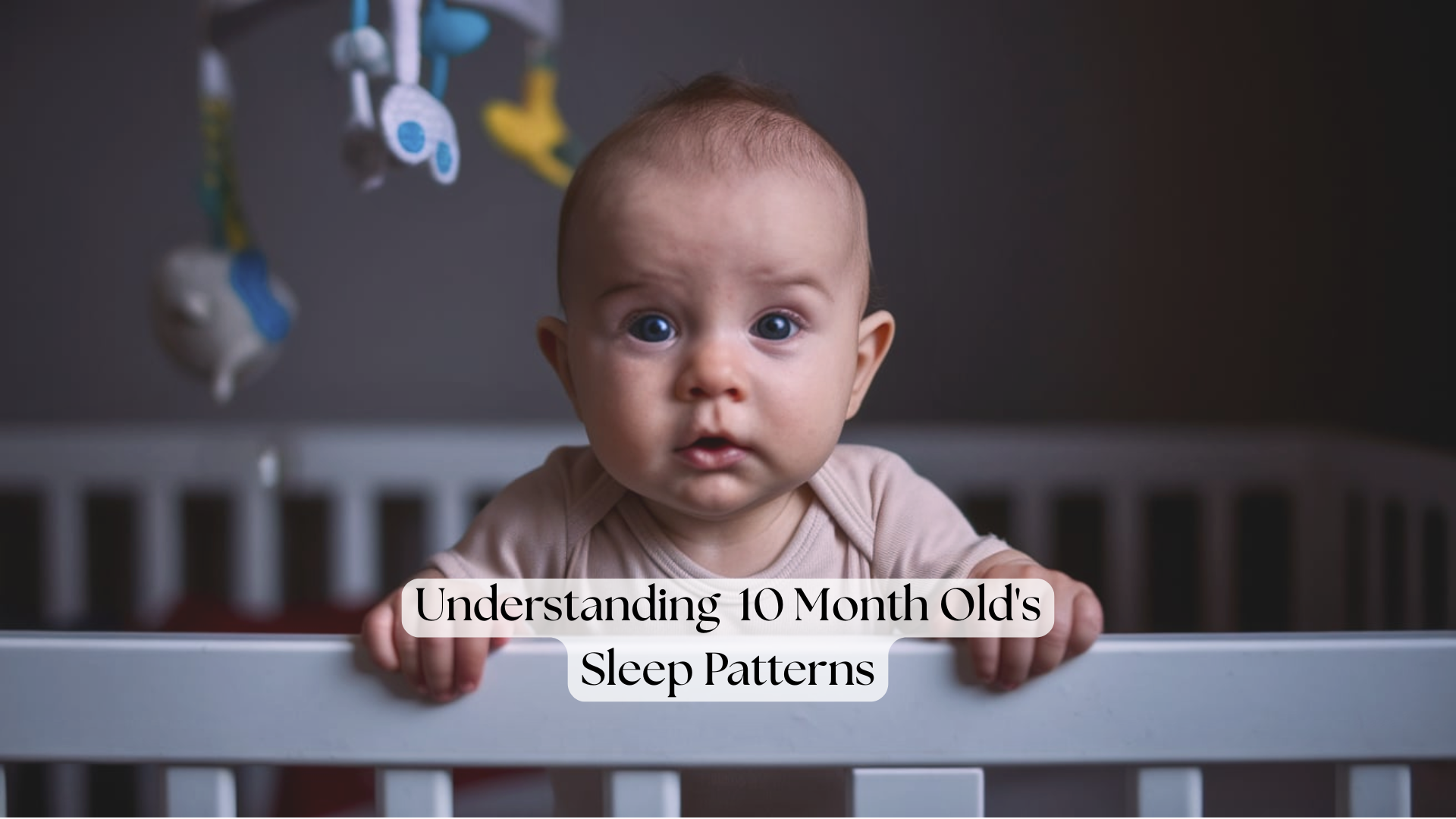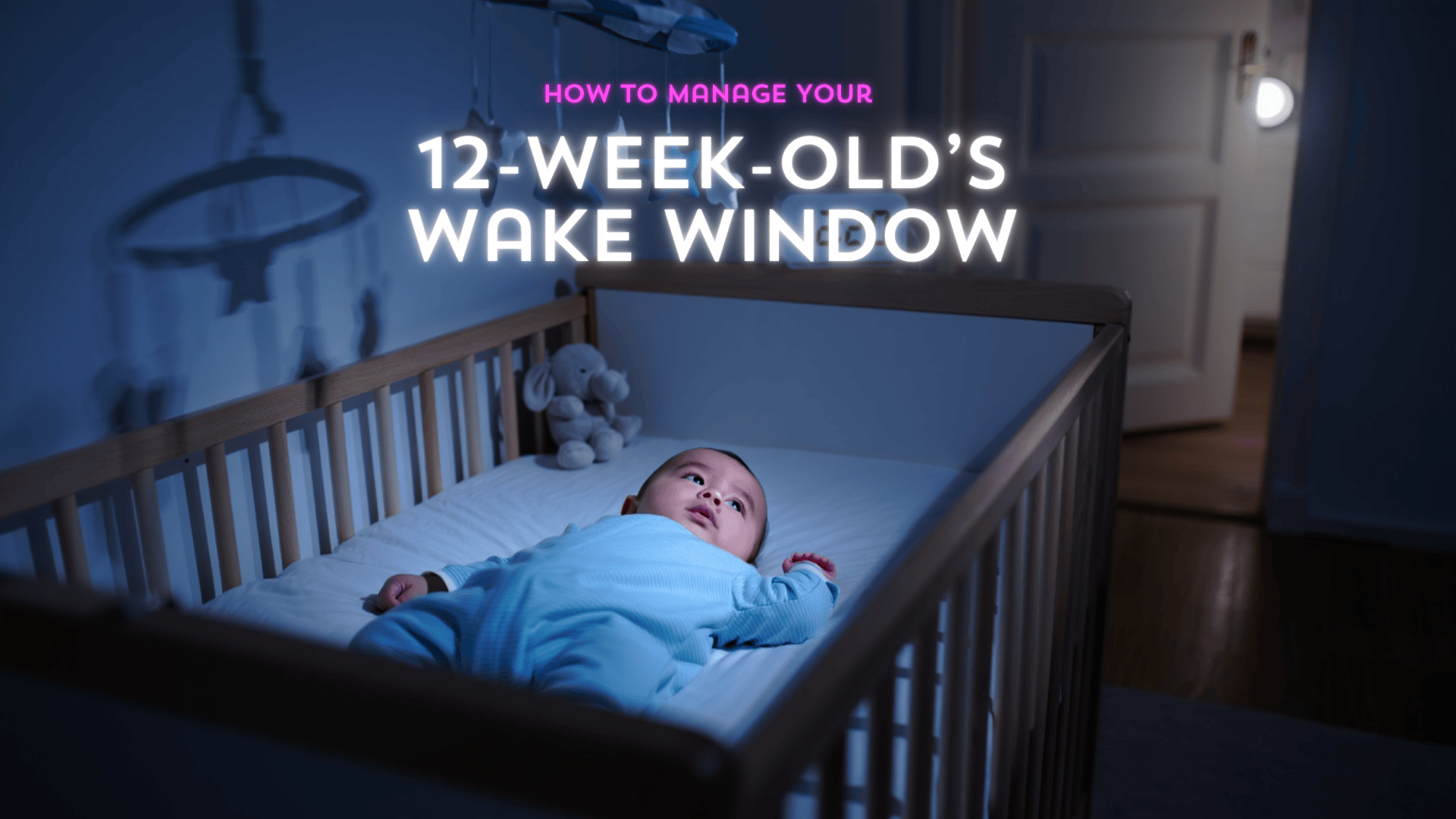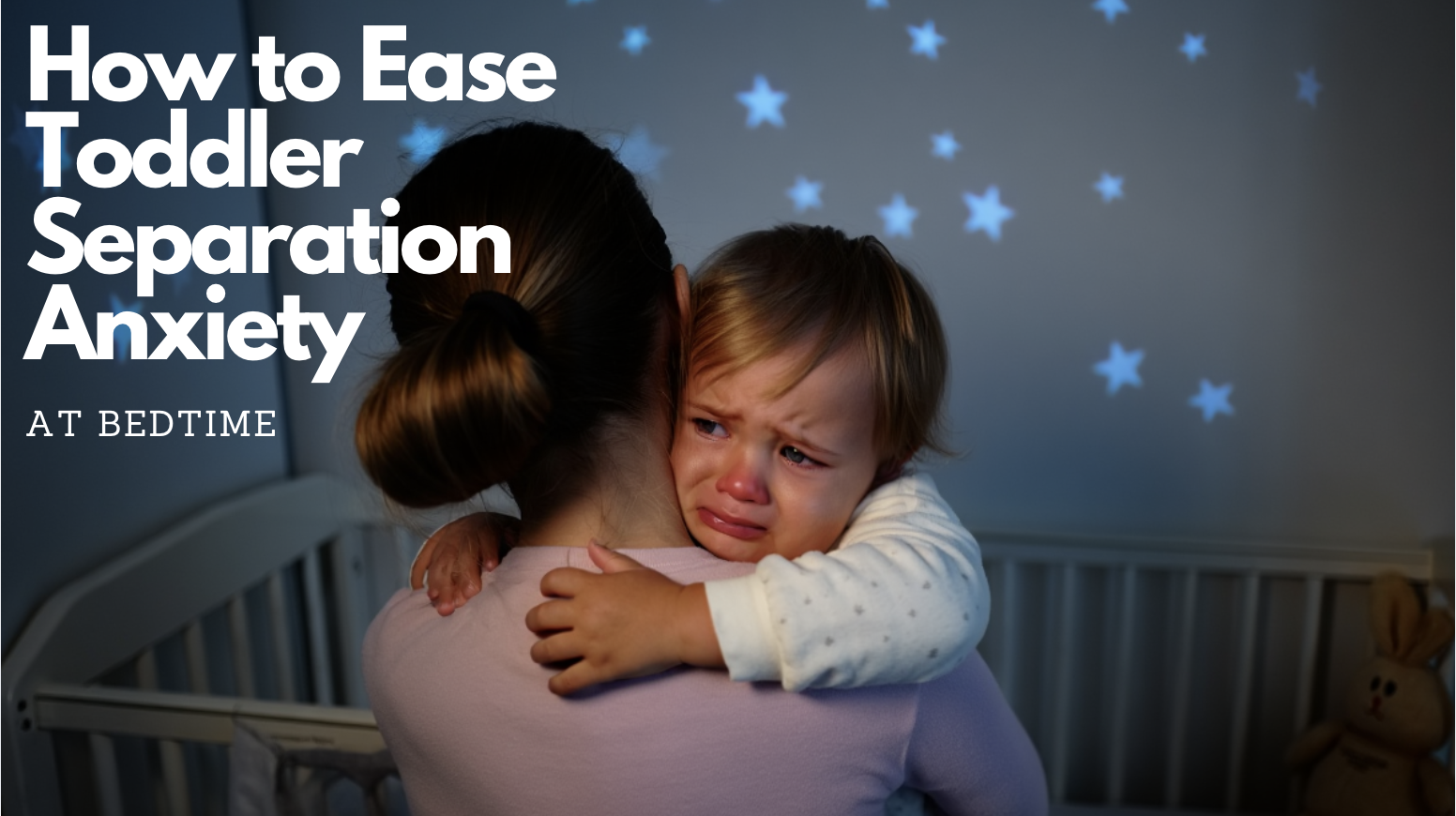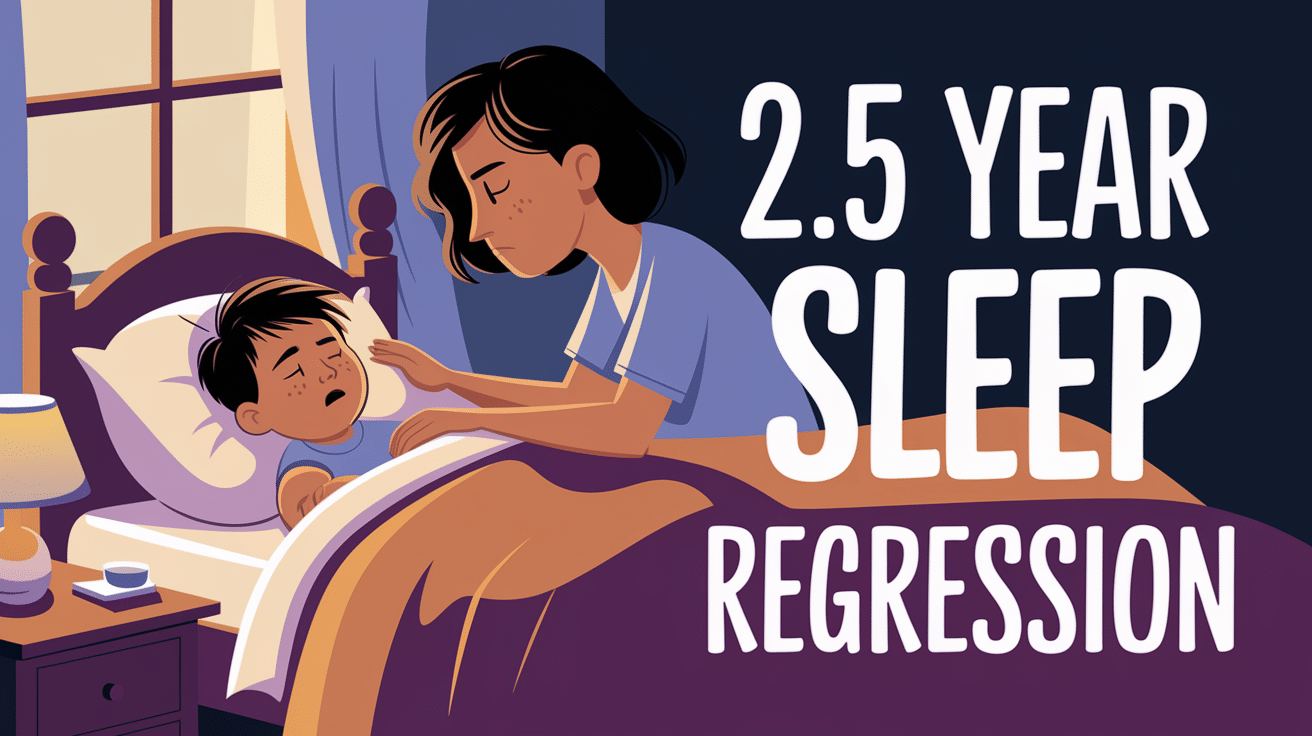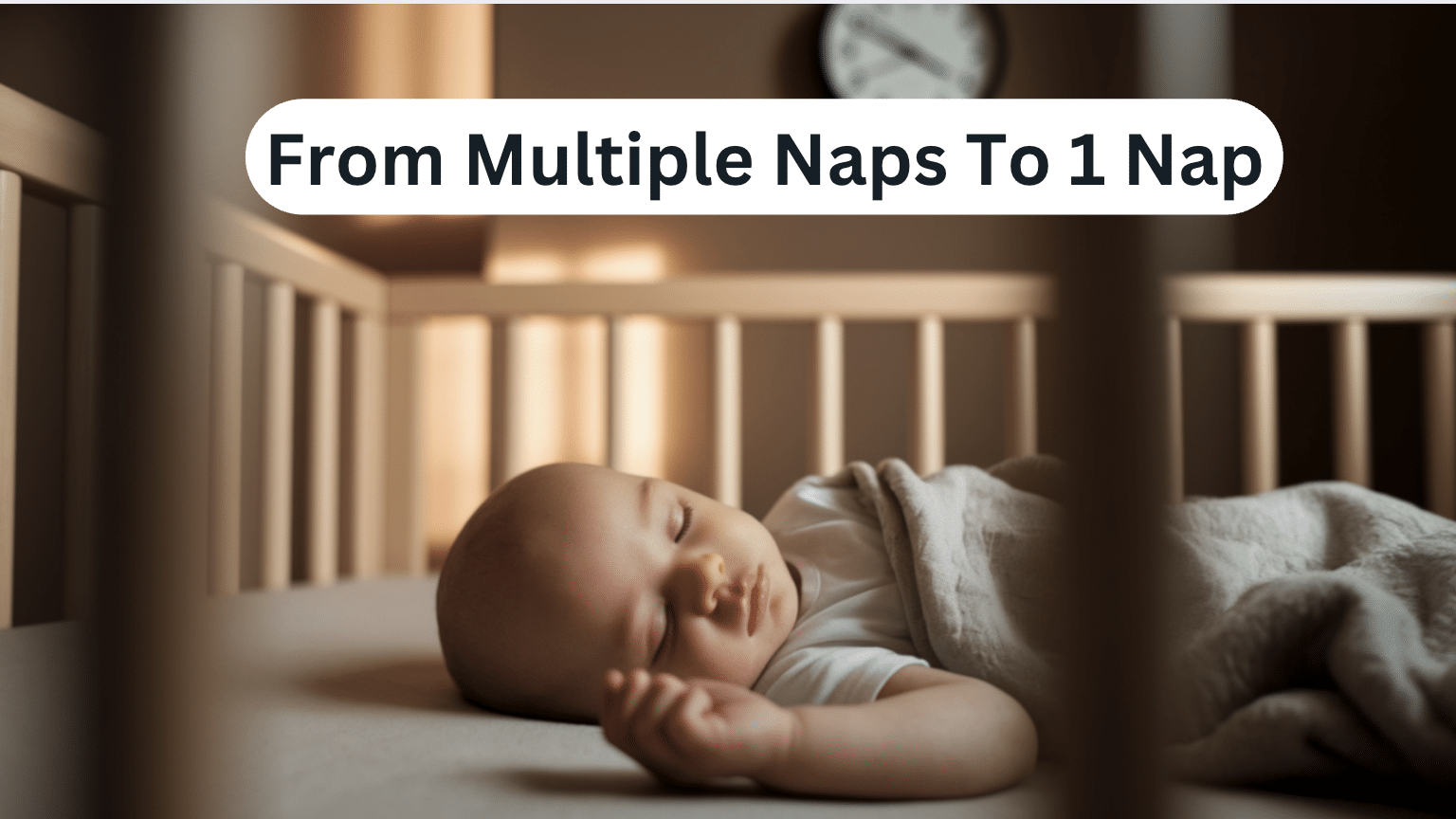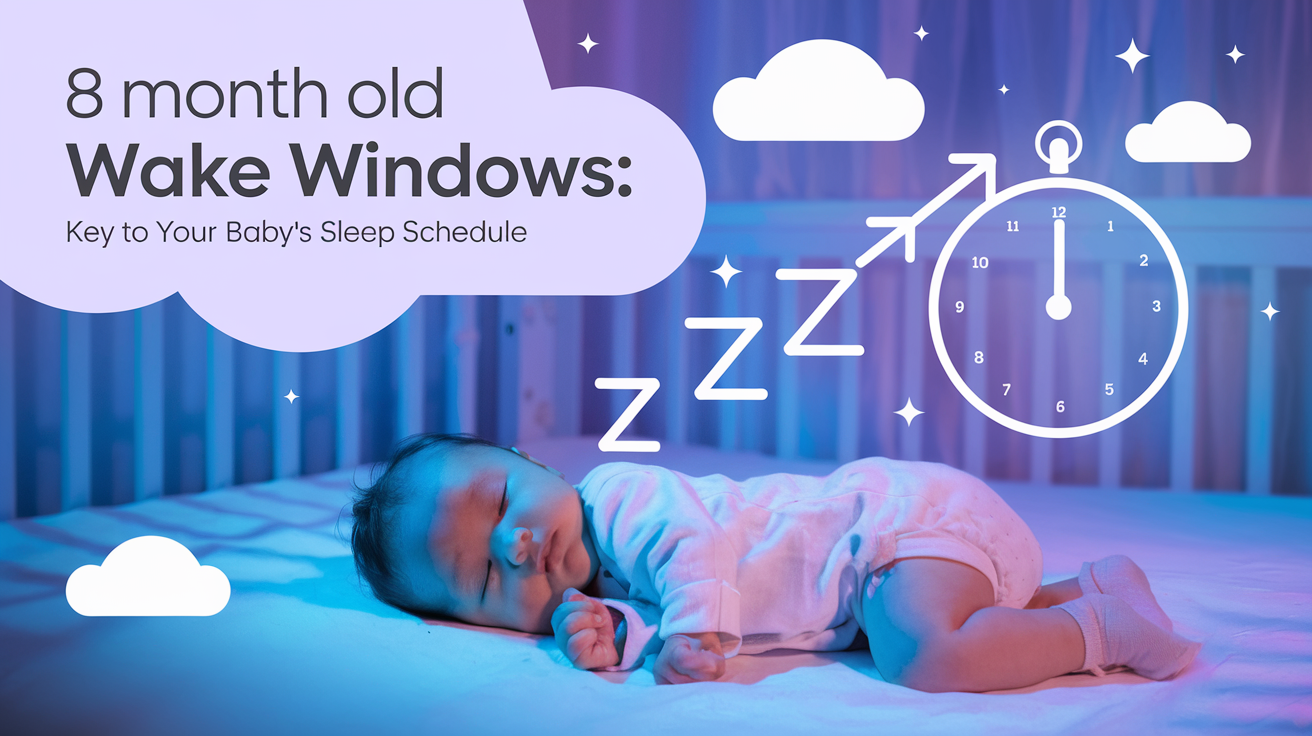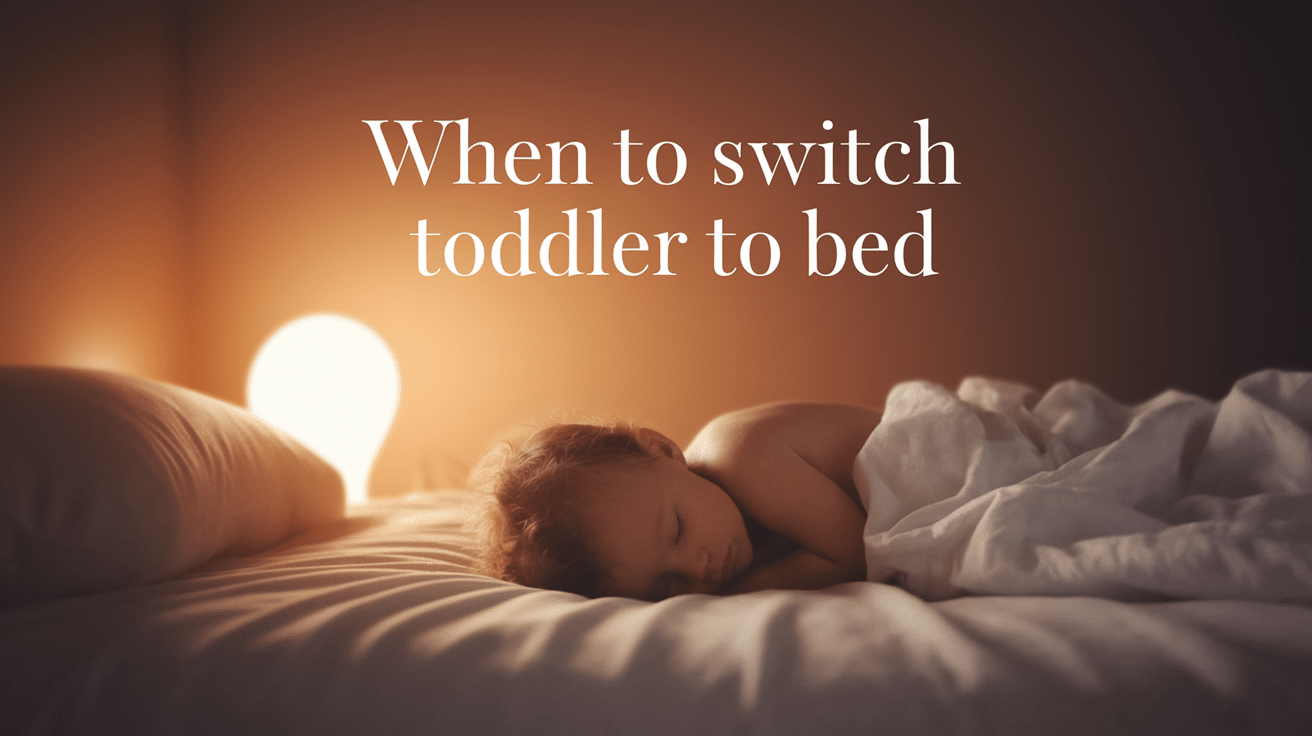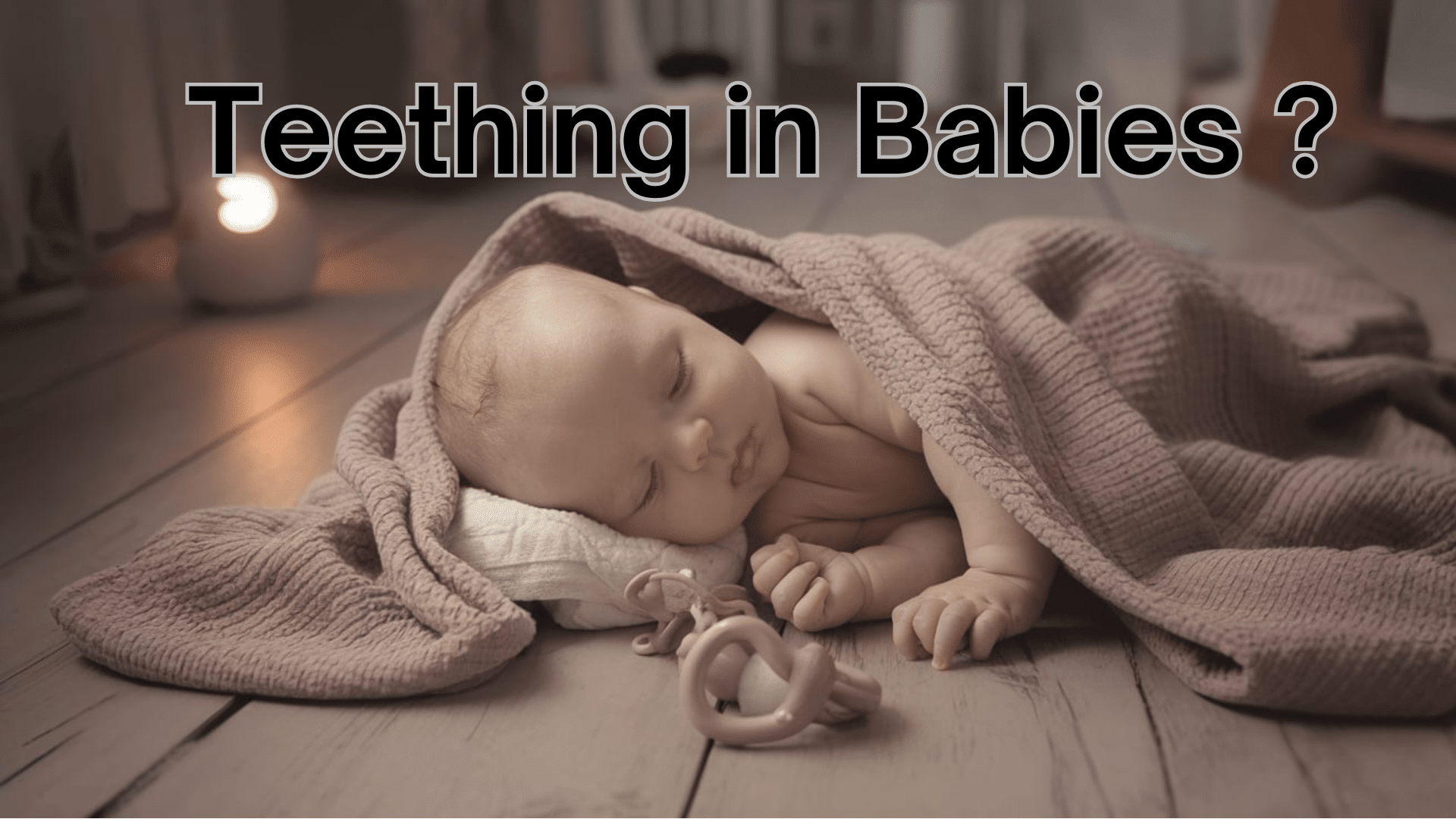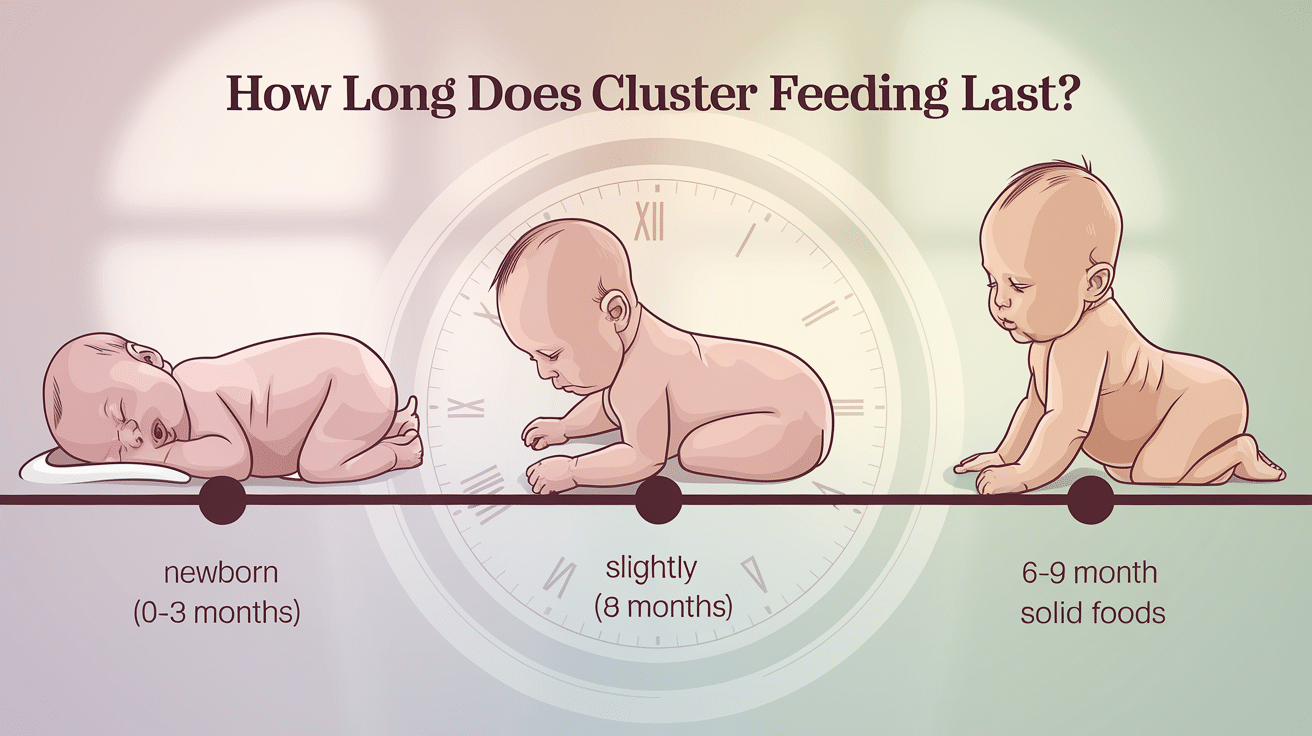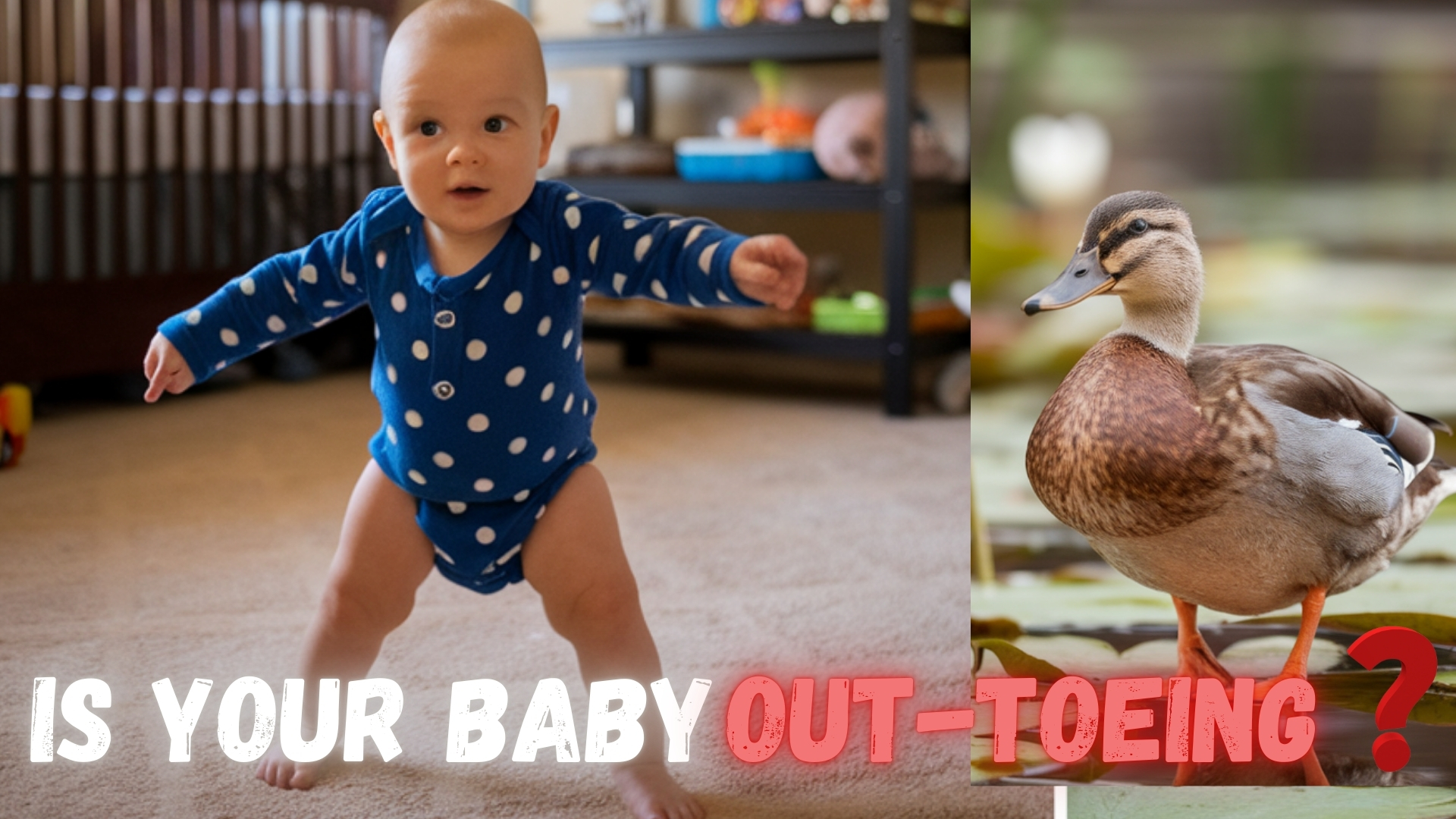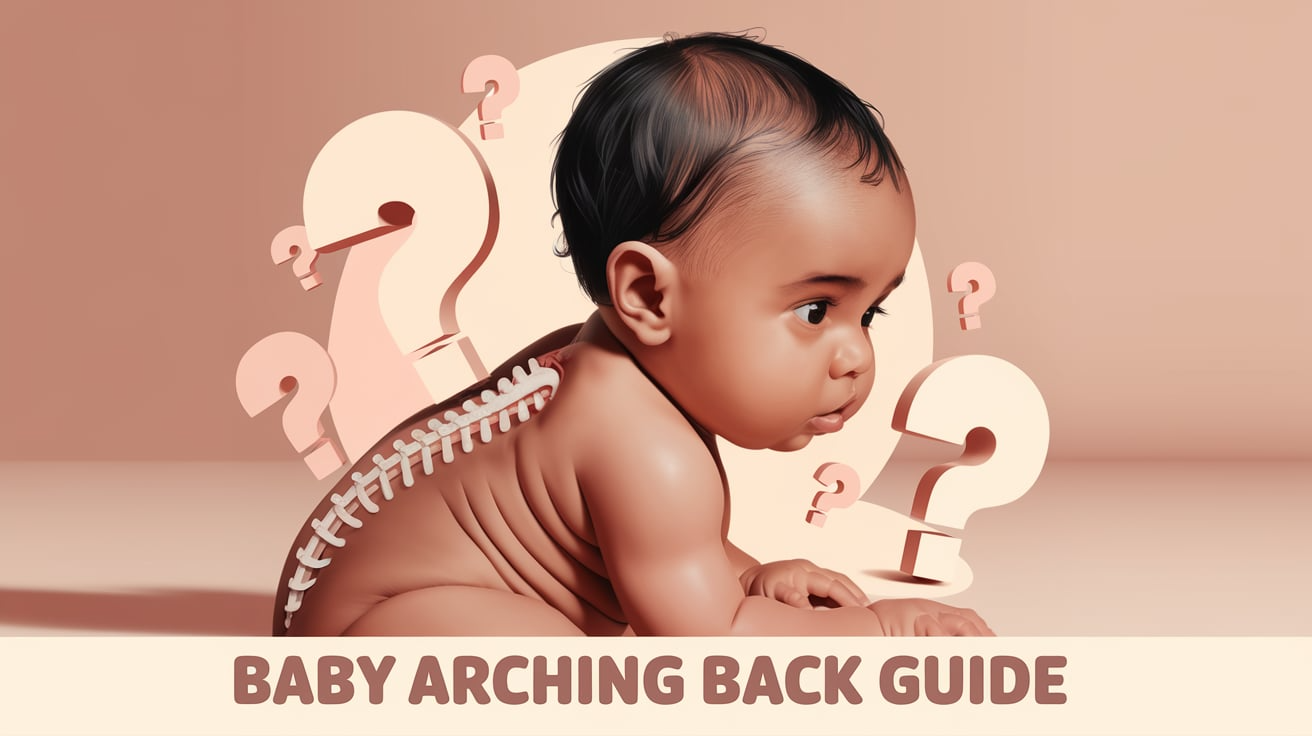
Have you noticed your little one sleeping with their mouth open?
As a parent, you may wonder if this common occurrence is normal or something to worry about.
Babies are natural nose-breathers, so seeing them sleep with an open mouth might raise questions about their breathing patterns and overall health.
While occasional mouth breathing is often harmless and temporary, persistent mouth breathing could indicate underlying issues that deserve attention.
We’ll learn why babies sleep with their mouths open, how to identify mouth breathing patterns, potential complications, effective home remedies, and when medical intervention might be necessary.
You’ll also learn practical prevention tips to help your baby breathe comfortably and develop properly. By the end, you will be able to distinguish between normal behavior and signs that warrant a doctor’s visit.
Does Open-Mouth Sleep Signal a Problem in Babies?
Babies are primarily nasal breathers by nature, designed to breathe through their noses while feeding. However, temporary mouth breathing is relatively common, especially during sleep.
Approximately 30-50% of infants may occasionally sleep with their mouths open, particularly when experiencing nasal congestion from a cold or allergies.
The key distinction lies between occasional and persistent mouth breathing. Occasional mouth breathing typically occurs during illness or congestion and resolves once the underlying cause clears.
In contrast, persistent mouth breathing happens regularly, even without obvious congestion.
While brief periods of mouth breathing aren’t concerning, persistent mouth breathing warrants attention as it could indicate underlying issues like enlarged adenoids, allergies, or structural nasal problems.
Parents should monitor whether mouth breathing is a temporary occurrence or a consistent pattern in their baby’s sleep habits.
Why Do Babies Sleep with Their Mouths Open?
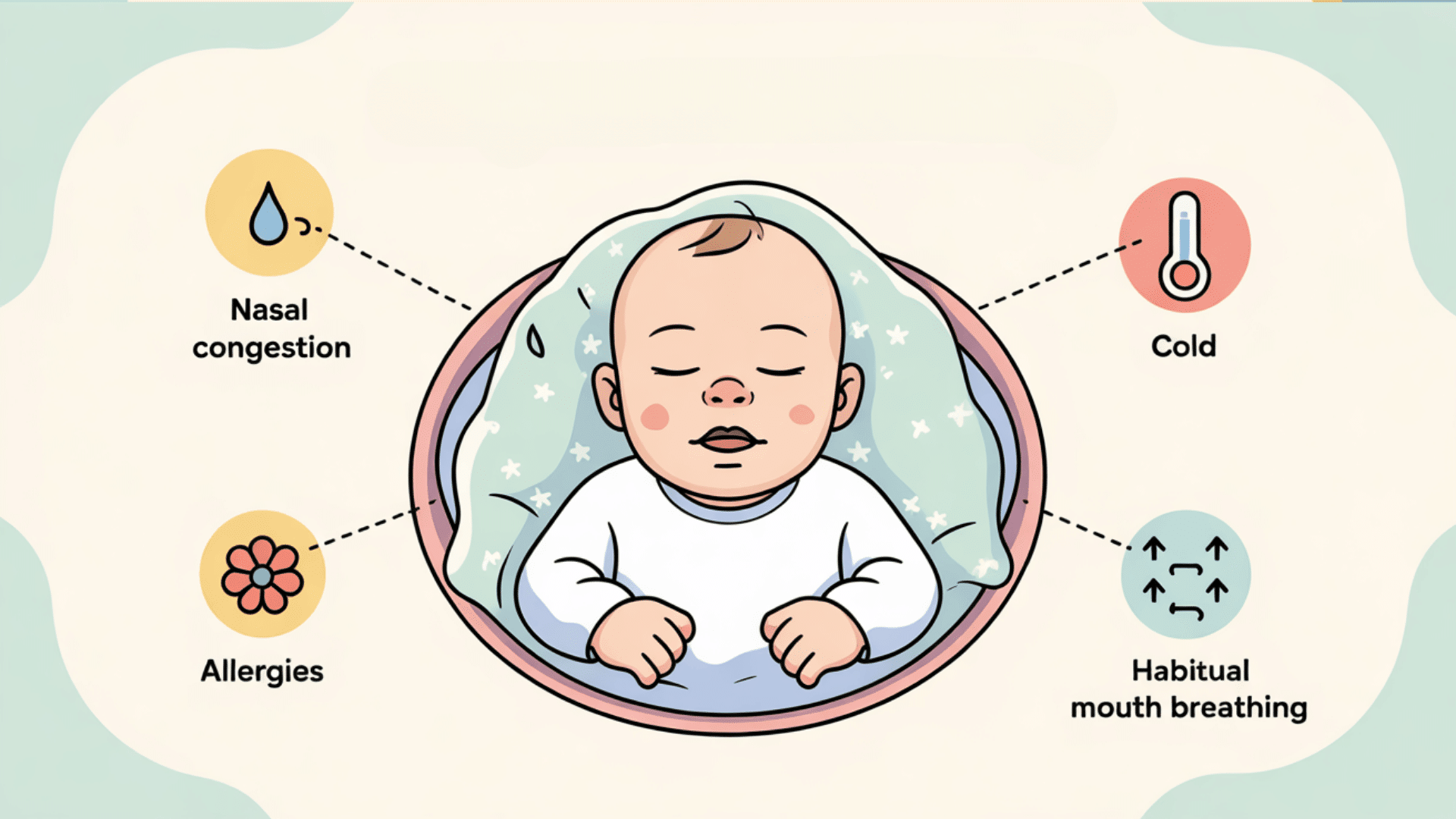
When babies sleep with their mouths open, several potential causes exist, ranging from temporary congestion to anatomical issues.
Understanding these causes can help parents determine when to be concerned and when to seek medical advice.
1. Nasal Congestion
Mouth breathing in babies is commonly caused by nasal congestion. When tiny nasal passages are blocked—often due to colds, allergies, dry air, or irritants—babies instinctively breathe through their mouths to get enough oxygen.
This behavior usually resolves once the congestion clears, but persistent symptoms may indicate an underlying issue that needs medical attention.
2. Enlarged Adenoids or Tonsils
Enlarged adenoids and tonsils can obstruct the airway, making it harder for babies to breathe through their noses. These lymphatic tissues help fight infections but may swell due to frequent illness.
Though present from birth, issues typically arise between ages 1- 3, but symptoms like mouth breathing can appear earlier in some infants with recurring infections.
3. Structural Issues
Structural issues like a deviated septum or naturally narrow nasal passages can make nasal breathing difficult for some babies. A deviated septum, present at birth, restricts airflow through one or both nostrils.
Similarly, narrow nasal passages become easily blocked with minor swelling, prompting infants to breathe through their mouths, especially during sleep or congestion.
4. Habitual Mouth Breathing
Mouth breathing in infants can become a habit if it persists during periods of nasal congestion. Even after the congestion clears, some babies may continue the behavior out of habit.
Temporary mouth breathing usually resolves with treatment, while persistent mouth breathing may indicate a deeper issue and, if left unaddressed, can impact facial growth or dental alignment.
Comparison of Mouth Breathing Signs
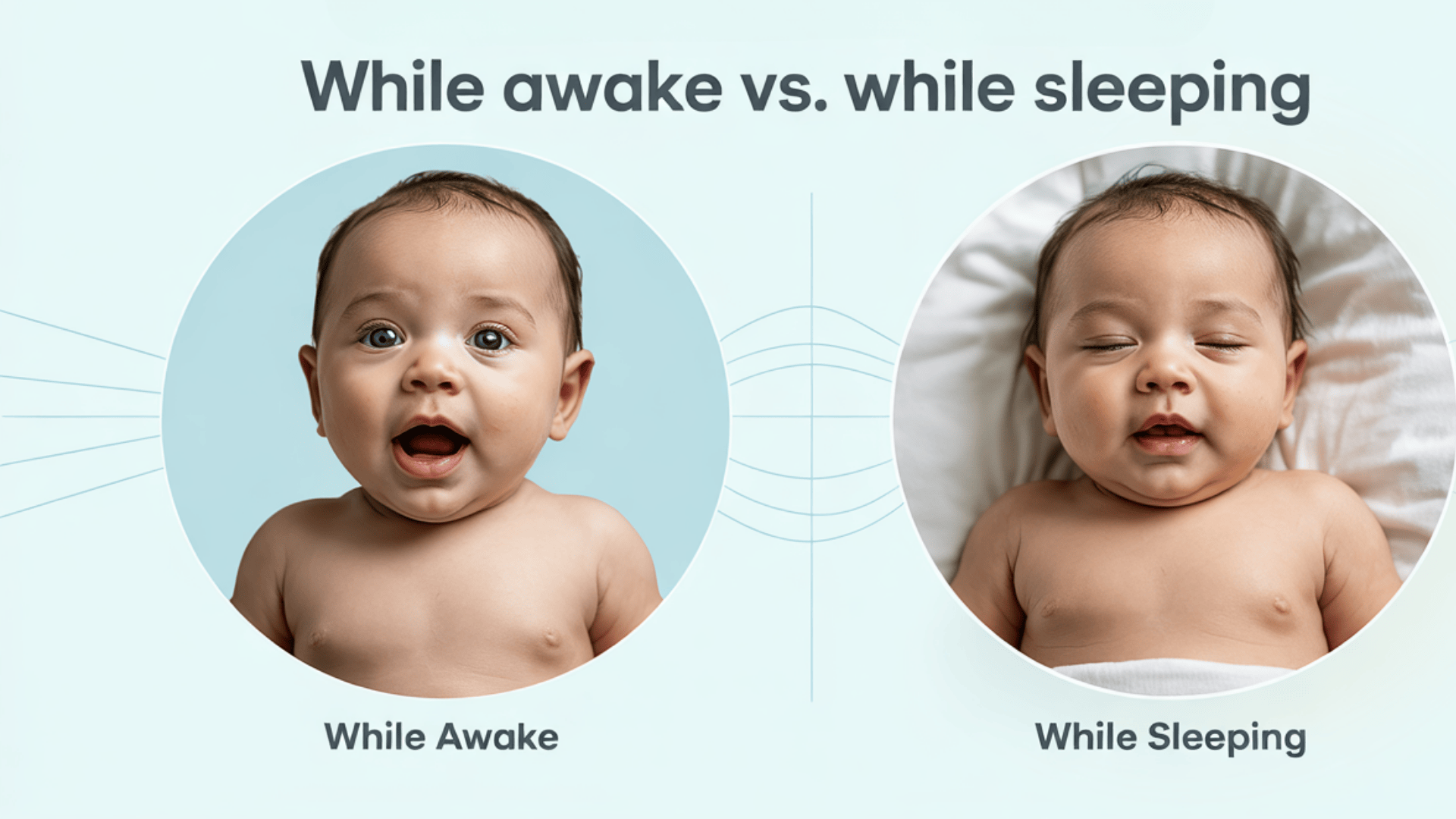
Recognizing whether your baby is mouth breathing during the day or at night can provide important clues about their overall health and development.
Below is a comparison of the common signs to help you determine if and when mouth breathing is occurring.
| SIGNS OF MOUTH BREATHING |
WHILE AWAKE | WHILE SLEEPING |
|---|---|---|
| Mouth posture | Constantly open mouth when at rest | Mouth remains open during sleep |
| Breathing sounds | Noisy breathing or slight wheezing | Light or consistent snoring |
| Drooling | Excessive drooling not related to teething | Wet bedding or bibs due to open-mouth posture |
| Breathing pattern | Noticeable chest and shoulder movement (rather than belly breathing) | Similar exaggerated breathing patterns may be observed |
| Restfulness | May appear tired despite adequate sleep | Restless sleep with frequent tossing, waking, or startling |
| Body posture | May tilt head or extend neck even while sitting or being held | Unusual sleep positions like head tilted back, neck extended, or side/stomach sleeping |
Possible Complications if Your Baby Continues to Sleep with Their Mouth Open
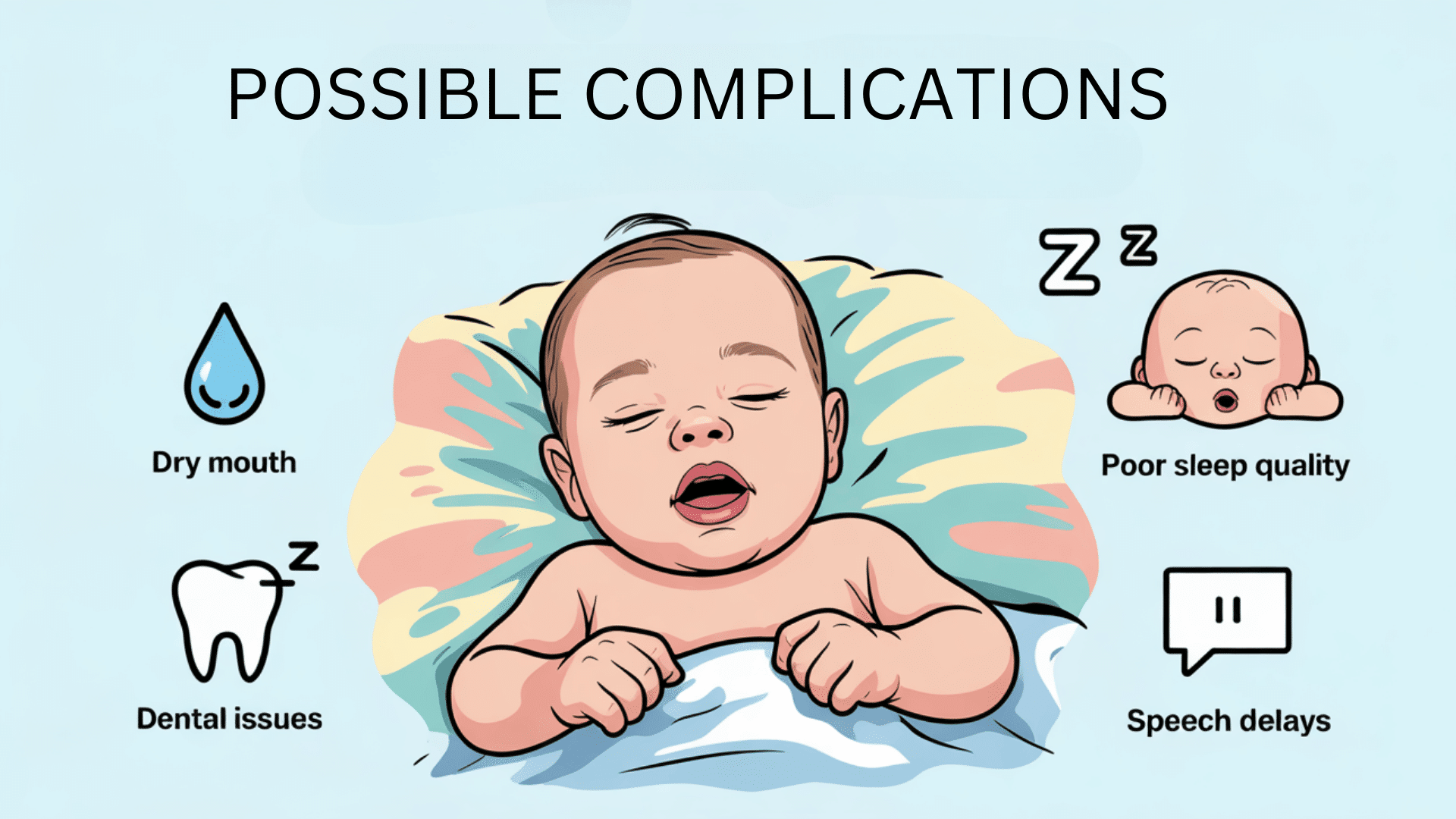
While occasional mouth breathing in babies is rarely cause for concern, persistent or chronic mouth breathing can lead to both immediate and long-term complications.
Understanding these potential issues can help parents recognize when to seek professional guidance to prevent more serious problems.
Immediate Effects
Mouth breathing can disrupt sleep cycles, leading to fragmented sleep, nighttime wakings, and daytime fussiness. This disrupted sleep further impacts your baby’s mood, development, and immune function.
Additionally, breathing through the mouth dries oral tissues, potentially causing discomfort and increased thirst in babies.
The bypassing of the nasal filtering system may also expose babies to more pathogens since the nasal passages help filter and humidify air, potentially leading to more frequent respiratory infections.
Long-term Concerns
Chronic mouth breathing can alter facial growth patterns, potentially resulting in longer, narrower faces with less defined cheekbones and a more recessed chin.
Improper tongue positioning from mouth breathing may lead to dental misalignment and narrow dental arches, potentially requiring orthodontic intervention later.
Speech development can be impacted as well since altered oral posture affects proper articulation and sound formation.
Perhaps most concerning is the increased risk of developing sleep-disordered breathing or sleep apnea later in childhood, which can significantly impact cardiovascular health, cognitive development, and overall well-being.
Treatments for Your Baby Sleeping with Their Mouth Open

Using a humidifier adds moisture to the air, thinning mucus and easing nasal congestion that can cause mouth breathing. Saline drops followed by gentle suctioning with a bulb syringe help clear nasal passages before sleep.
Keeping your baby upright for 15–30 minutes after feeding can reduce reflux that irritates nasal passages. Pediatricians may recommend antihistamines or nasal steroids for allergy-related causes; antibiotics might be needed for infections.
If structural issues like enlarged adenoids or tonsils block airflow, surgery may be considered—usually after age two unless symptoms are severe.
Most cases of mouth breathing can be resolved by identifying and treating the underlying cause. Always consult your pediatrician before starting any treatment to ensure it’s safe and appropriate for your baby’s specific needs.
Prevention Tips
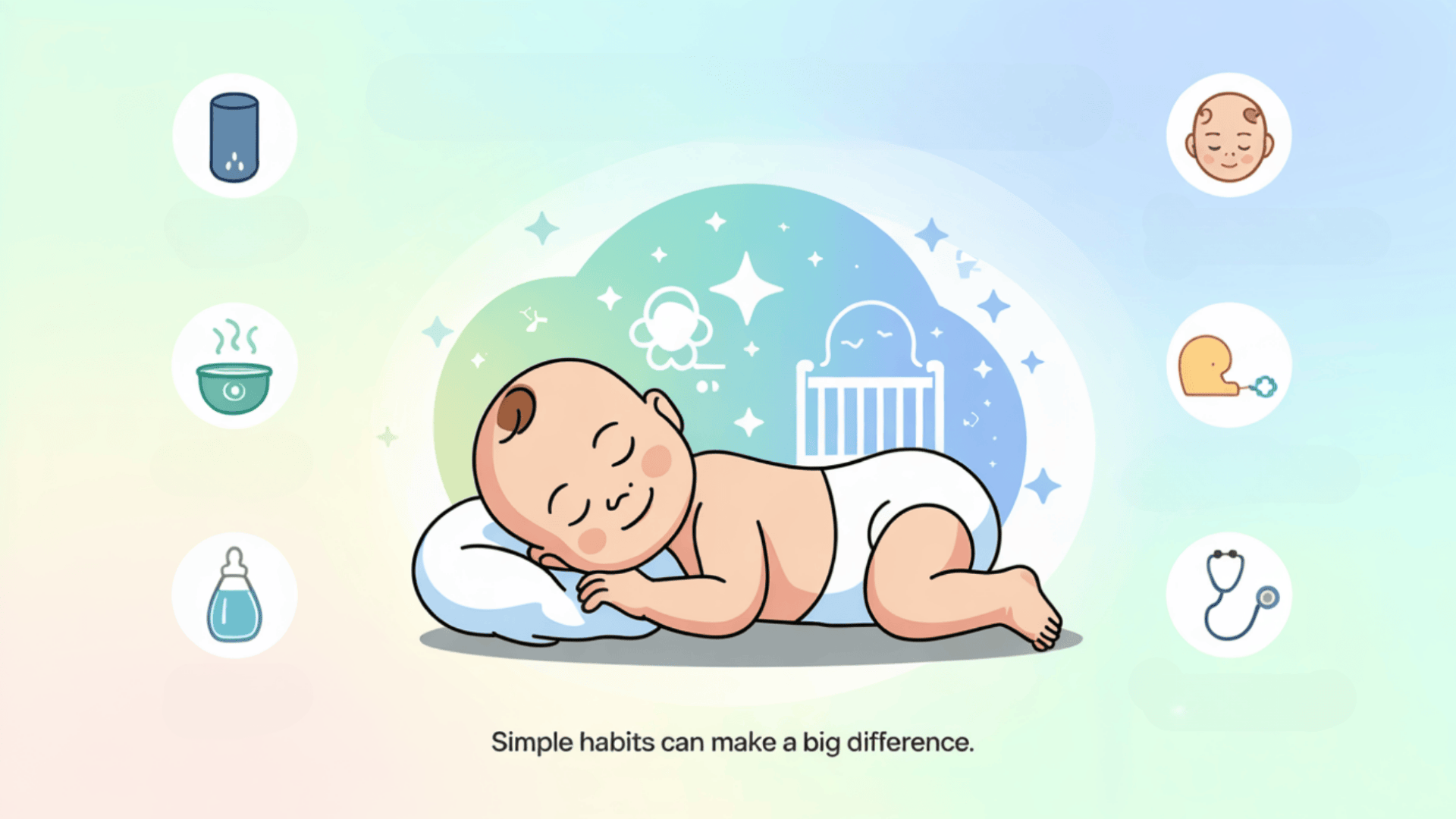
Preventing mouth breathing in babies often involves creating optimal sleeping conditions and establishing healthy routines.
These proactive measures can help maintain clear nasal passages and encourage proper breathing patterns.
1. Optimal Humidity
Maintaining humidity levels between 40% and 50% in your baby’s room helps prevent nasal passages from drying out or becoming congested. Consider using a cool-mist humidifier, especially during winter months or in dry climates.
2. Allergen Management
Regularly wash bedding in hot water, vacuum carpets and upholstery frequently, and consider using allergen-proof mattress and pillow covers to minimize dust mites and other potential irritants.
3. Temperature Considerations
Overheated rooms can dry out nasal passages; aim to keep the nursery between 68-72°F (20-22°C) for optimal breathing and comfort.
4. Positioning Techniques
For babies under one year, always place them on their backs to sleep for safety, but consider upgrading the head of the crib mattress slightly (following pediatrician guidance) to help drainage if congestion is present.
5. Routine Considerations
Consistent bedtime routines that include a warm bath can help clear nasal passages before sleep. A gentle nasal rinse with saline solution can also be incorporated into pre-bedtime routines.
6. Monitoring Approaches
Observe your baby’s breathing patterns and sleep quality, noting any changes that might indicate developing issues.
Using a video monitor allows you to observe breathing patterns without disturbing sleep, while tracking congestion patterns in relation to environmental factors can help identify and eliminate triggers.
When to See a Doctor?

While occasional mouth breathing isn’t concerning, consult your pediatrician if your baby shows signs of labored breathing, including flared nostrils, chest retractions, or unusual noises while breathing.
Sleep disturbances like frequent waking, excessive snoring, gasping, or long pauses in breathing warrant immediate medical attention, as these may indicate sleep apnea or other serious conditions.
Additionally, persistent mouth breathing that coincides with growth issues, delayed development milestones, or problems with feeding requires professional evaluation.
Chronic congestion lasting more than 10 days, recurrent ear infections, or a constantly runny nose should also prompt a doctor’s visit to identify potential allergies or structural issues requiring intervention.
Conclusion
Finding your baby sleeping with their mouth open can naturally trigger concerns. However, occasional mouth breathing is common and typically resolves without intervention, especially during minor illnesses or congestion.
We’ve explored the causes of mouth breathing, from simple nasal congestion to structural issues like enlarged adenoids.
We’ve examined the signs to watch for, potential complications, effective treatments, and preventive measures to create an optimal breathing environment for your little one.
The key takeaway is understanding the difference between temporary and persistent mouth breathing.
While occasional open-mouth sleeping during a cold isn’t concerning, consistent mouth breathing accompanied by snoring, sleep disturbances, or developmental issues warrants medical attention.
Trust your parental instincts—you know your baby best. With the right knowledge and appropriate interventions when needed, you can ensure your baby develops healthy breathing patterns for life.
If you’re interested in more informational content on mothers and babies, feel free toclick here and explore other blogs that you might enjoy.






